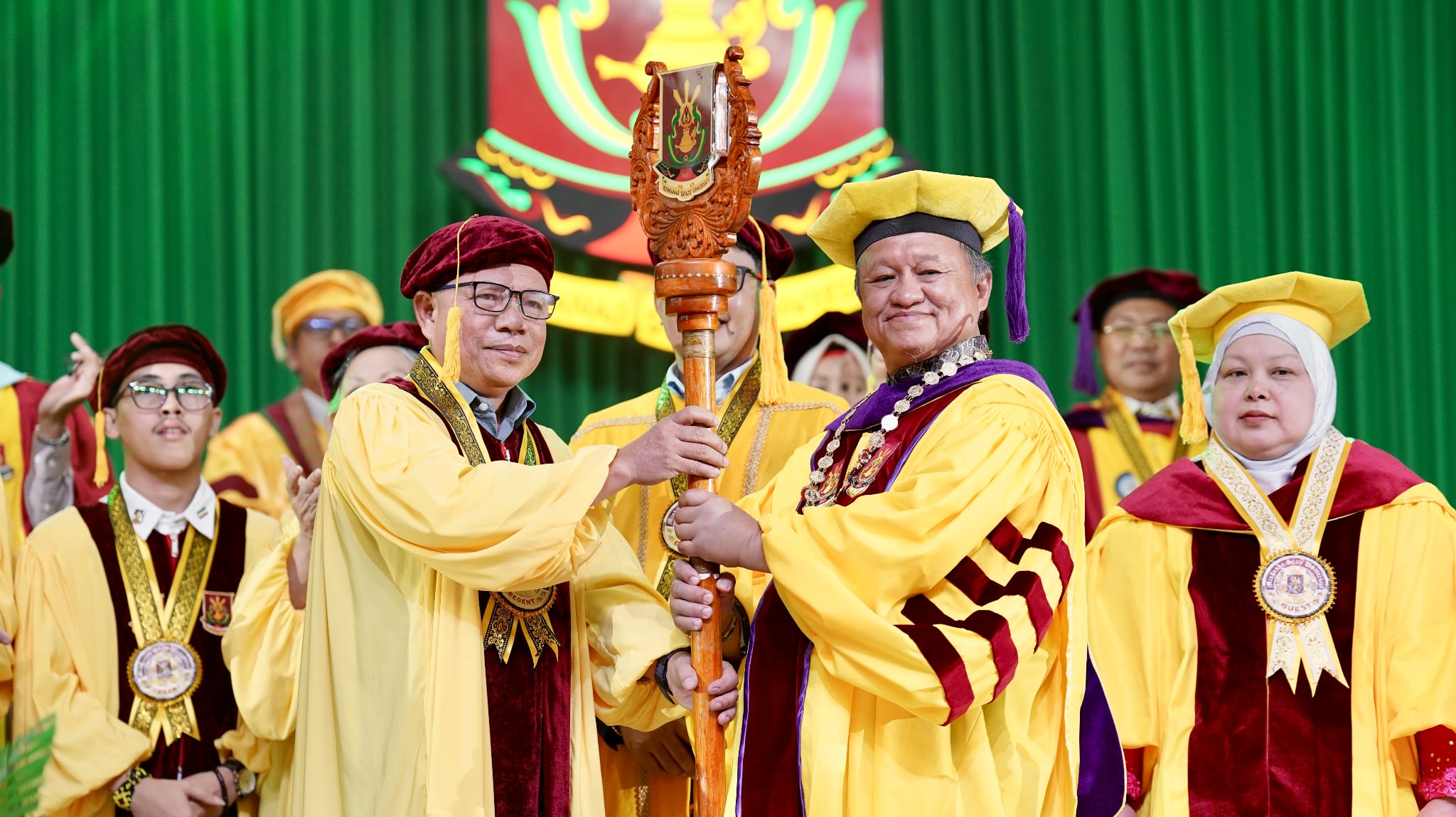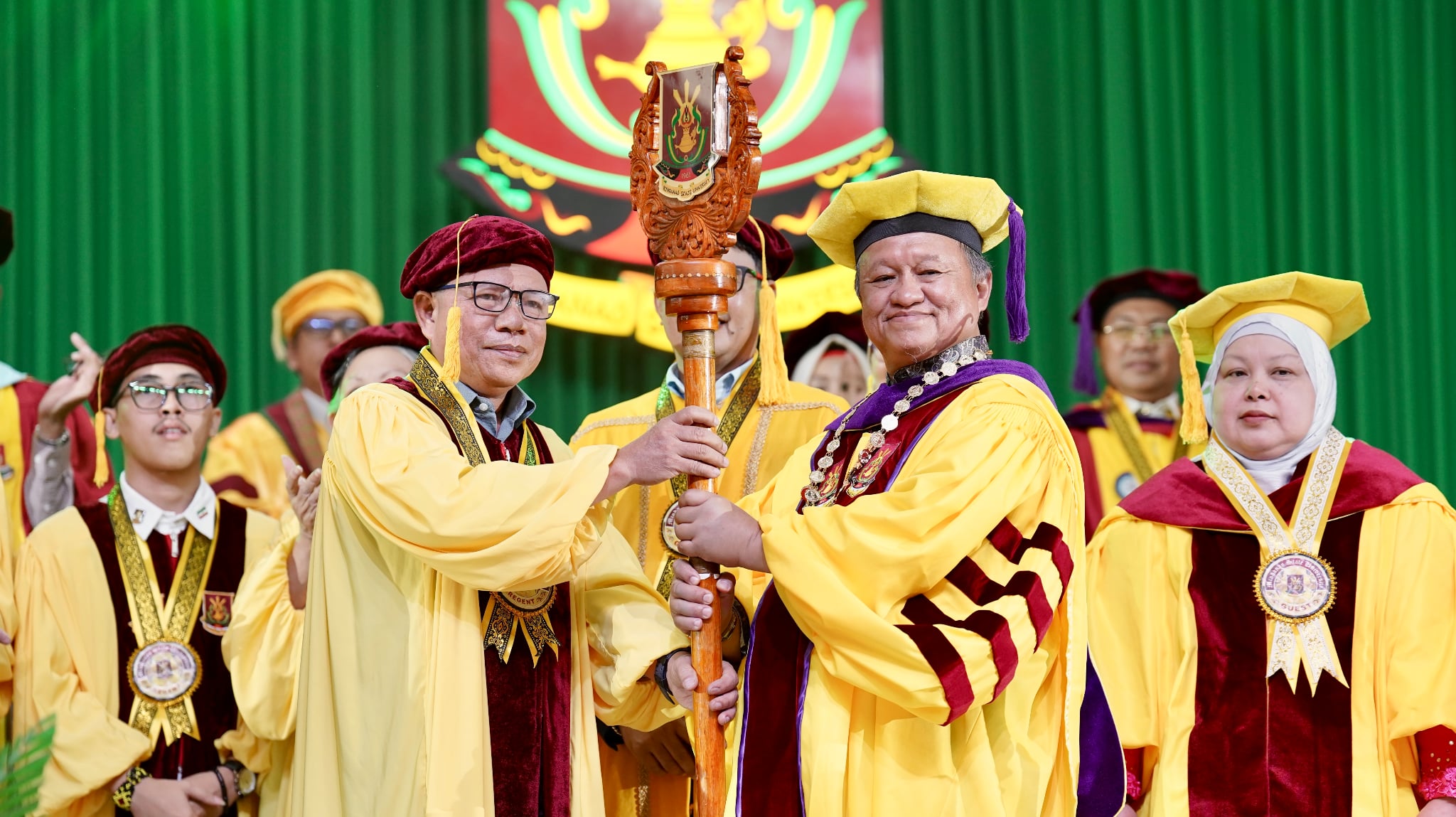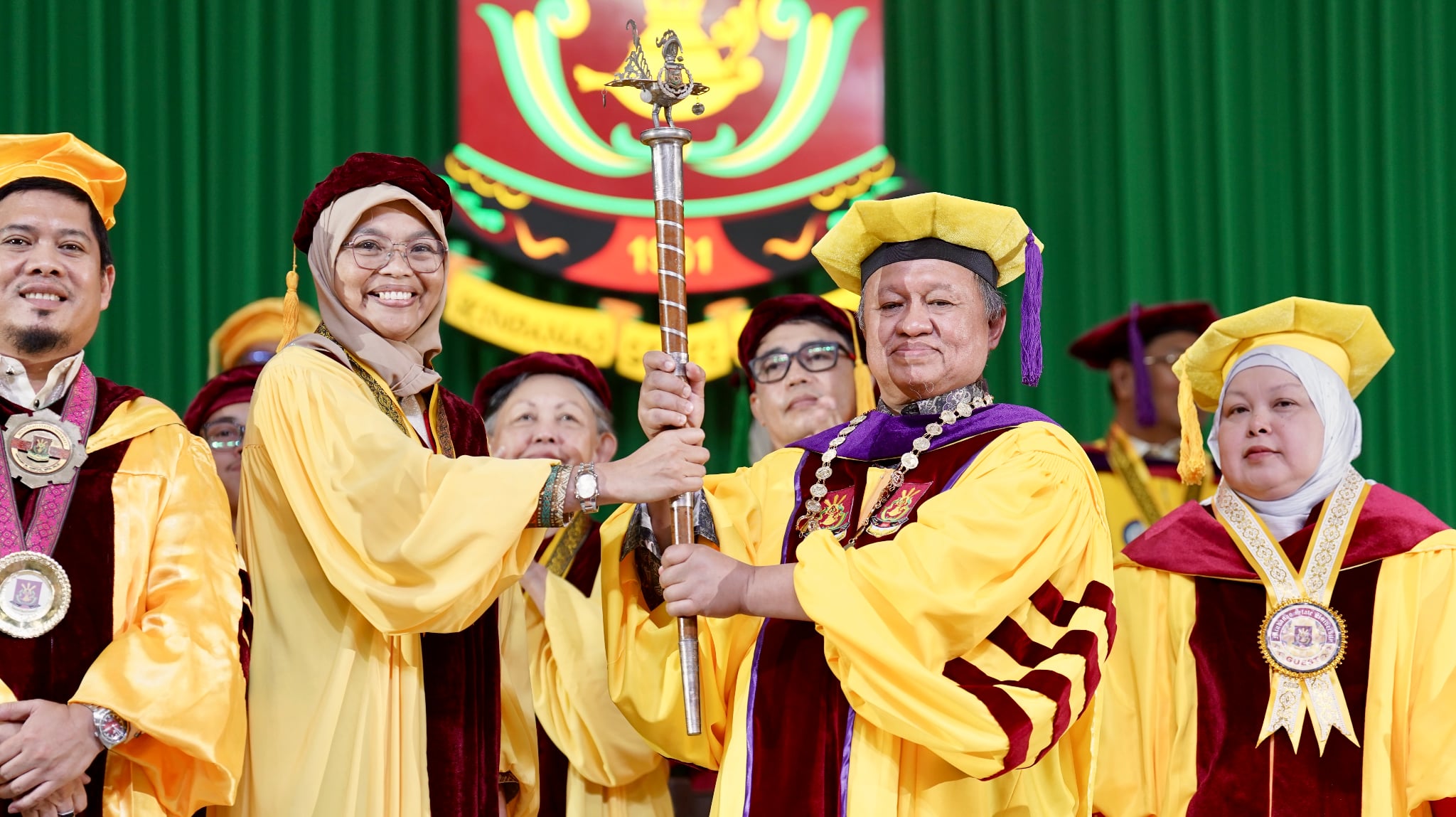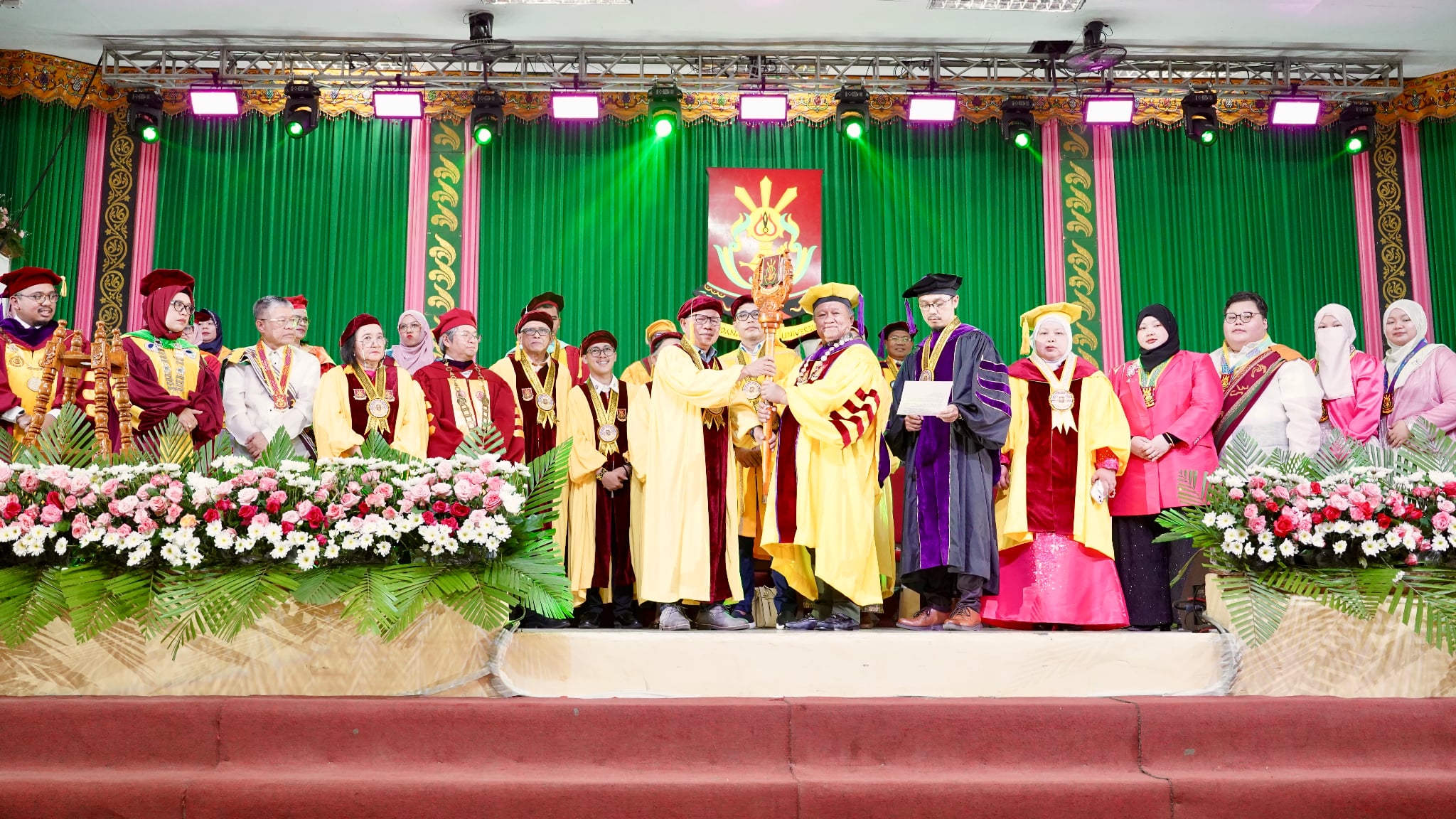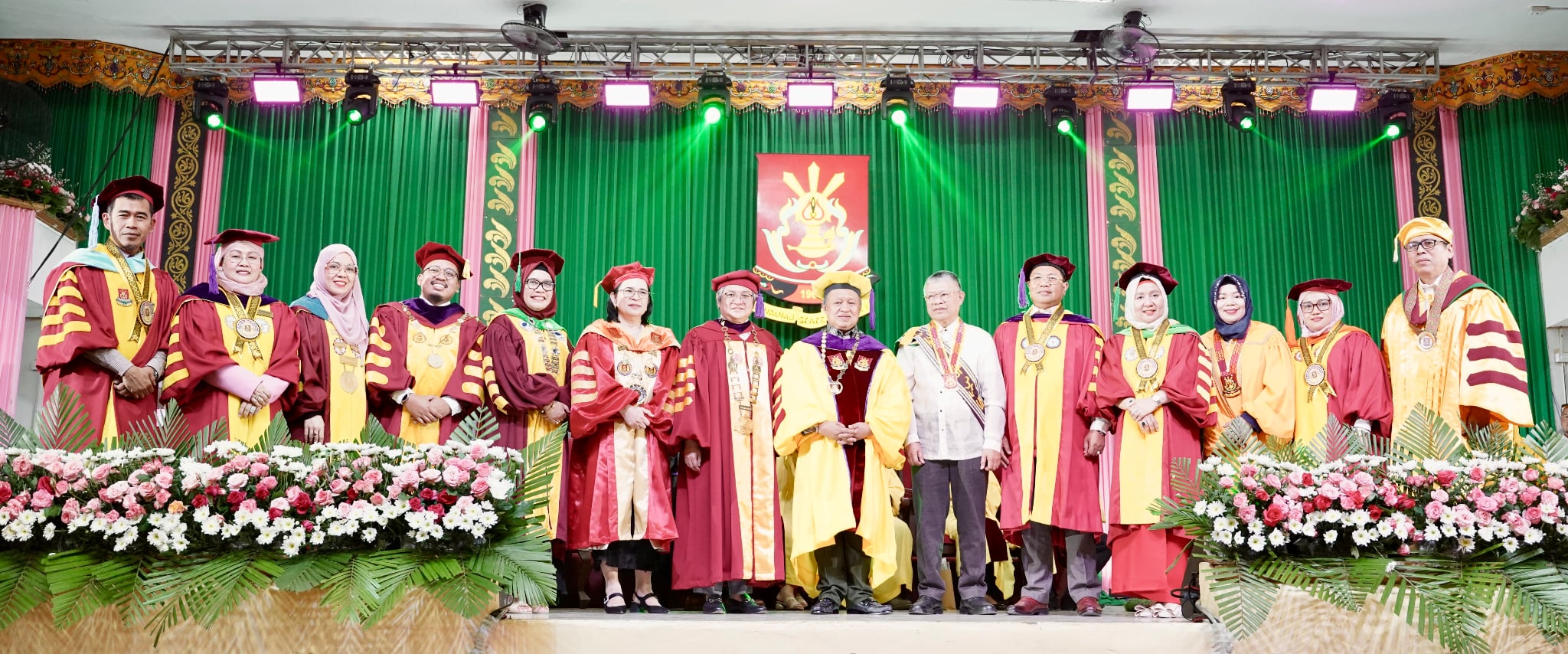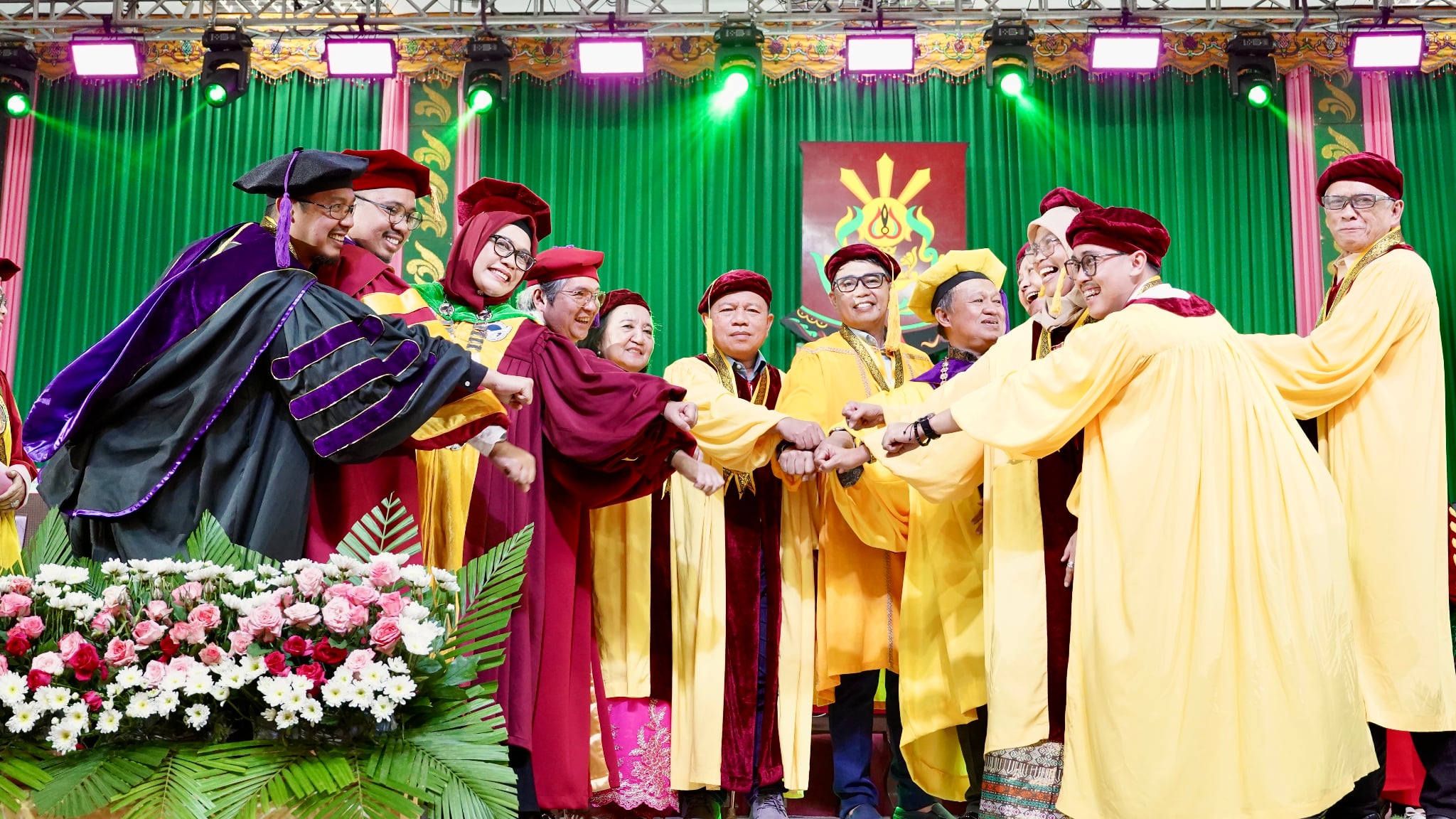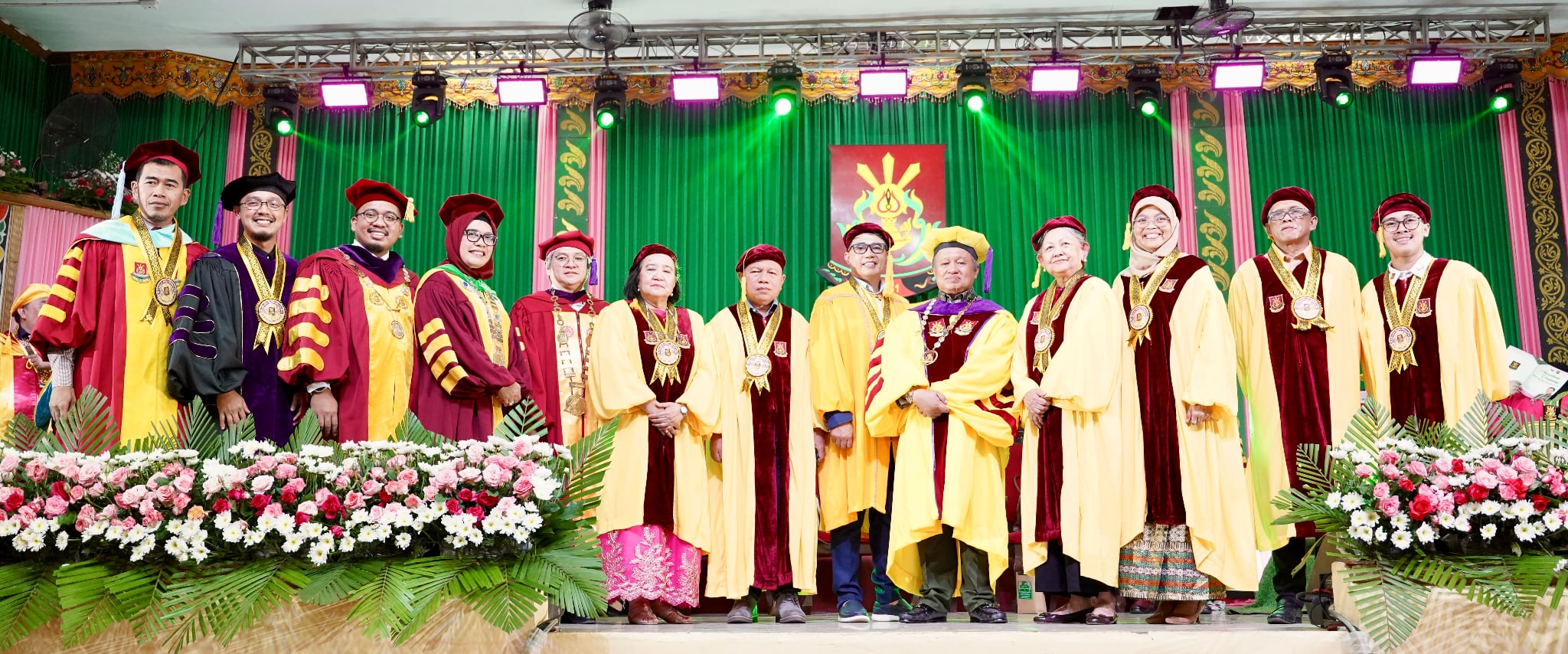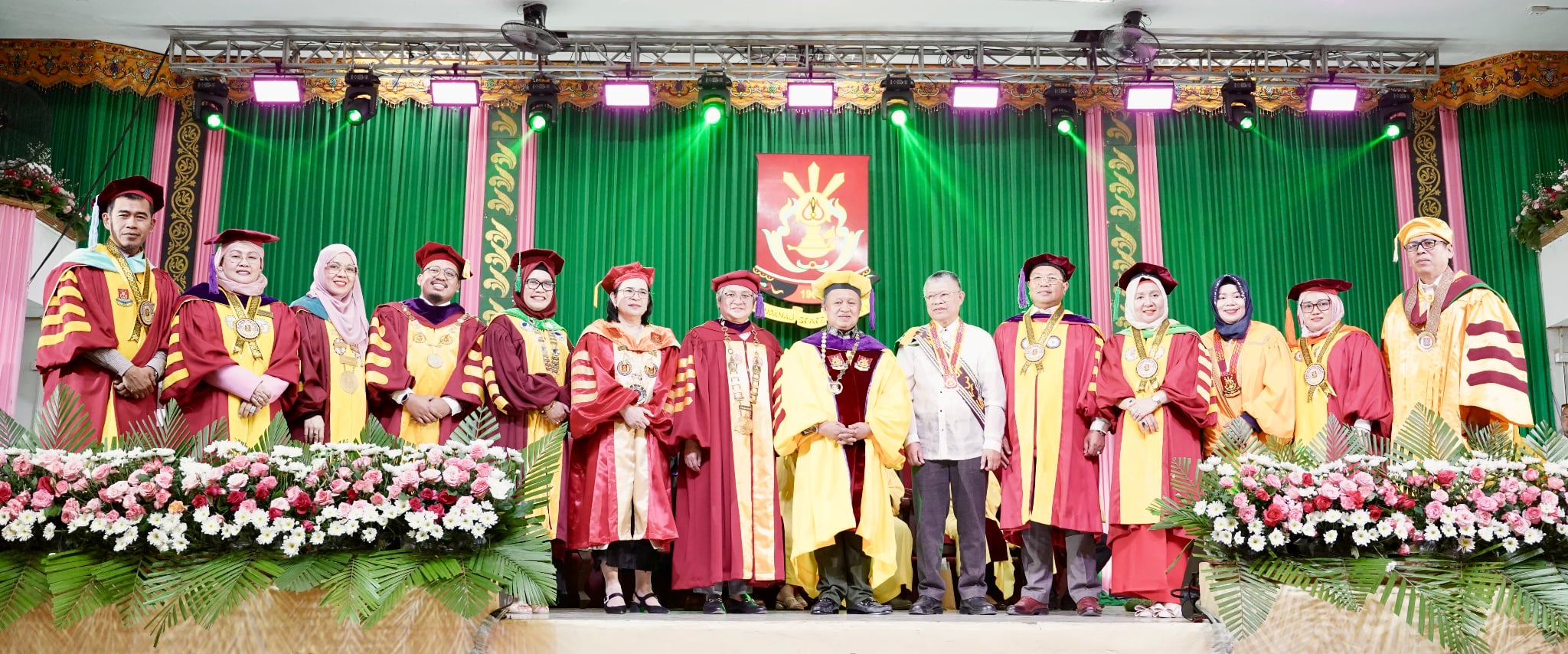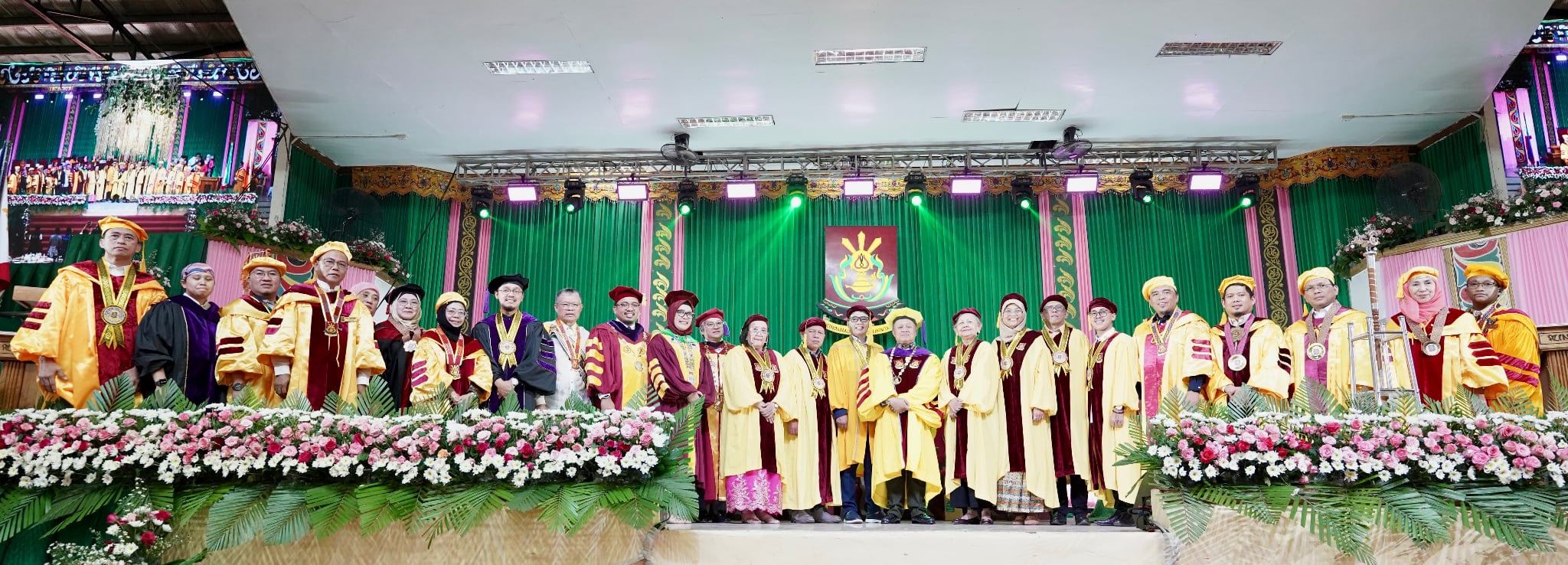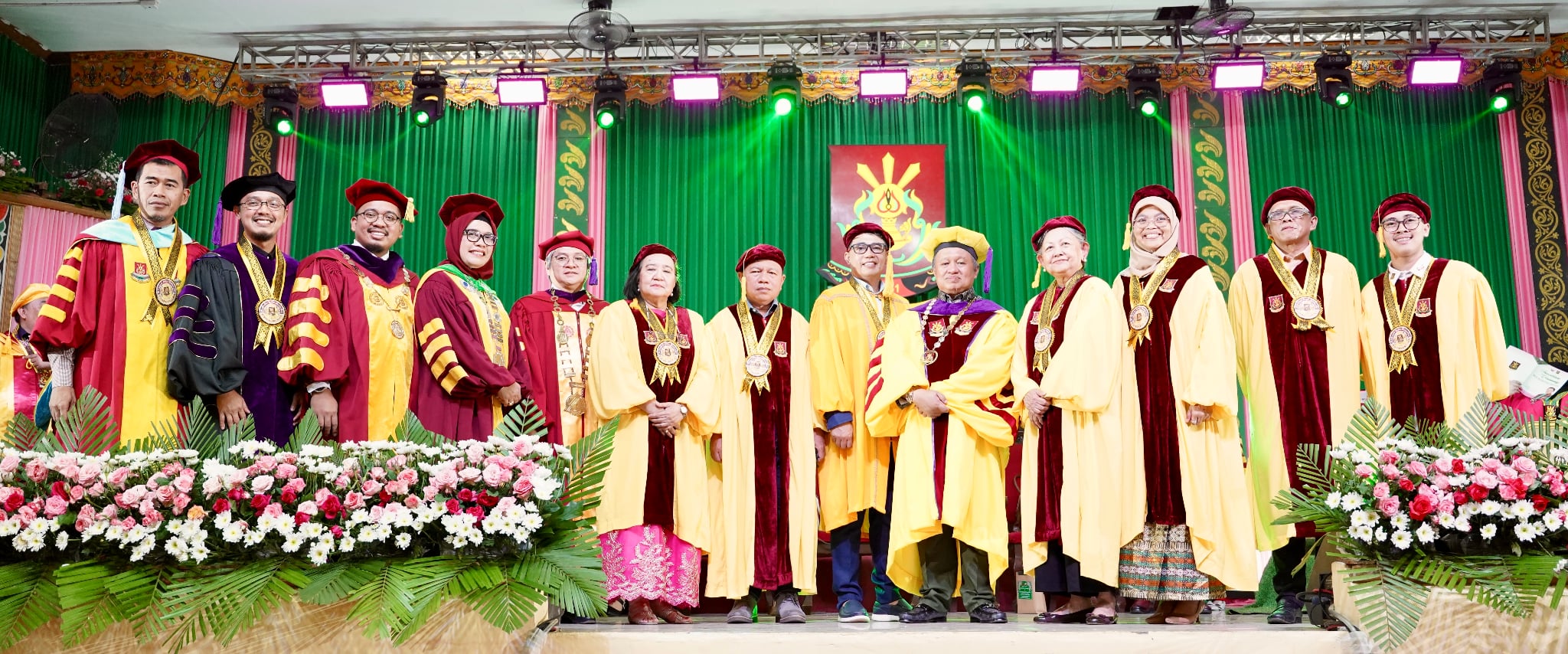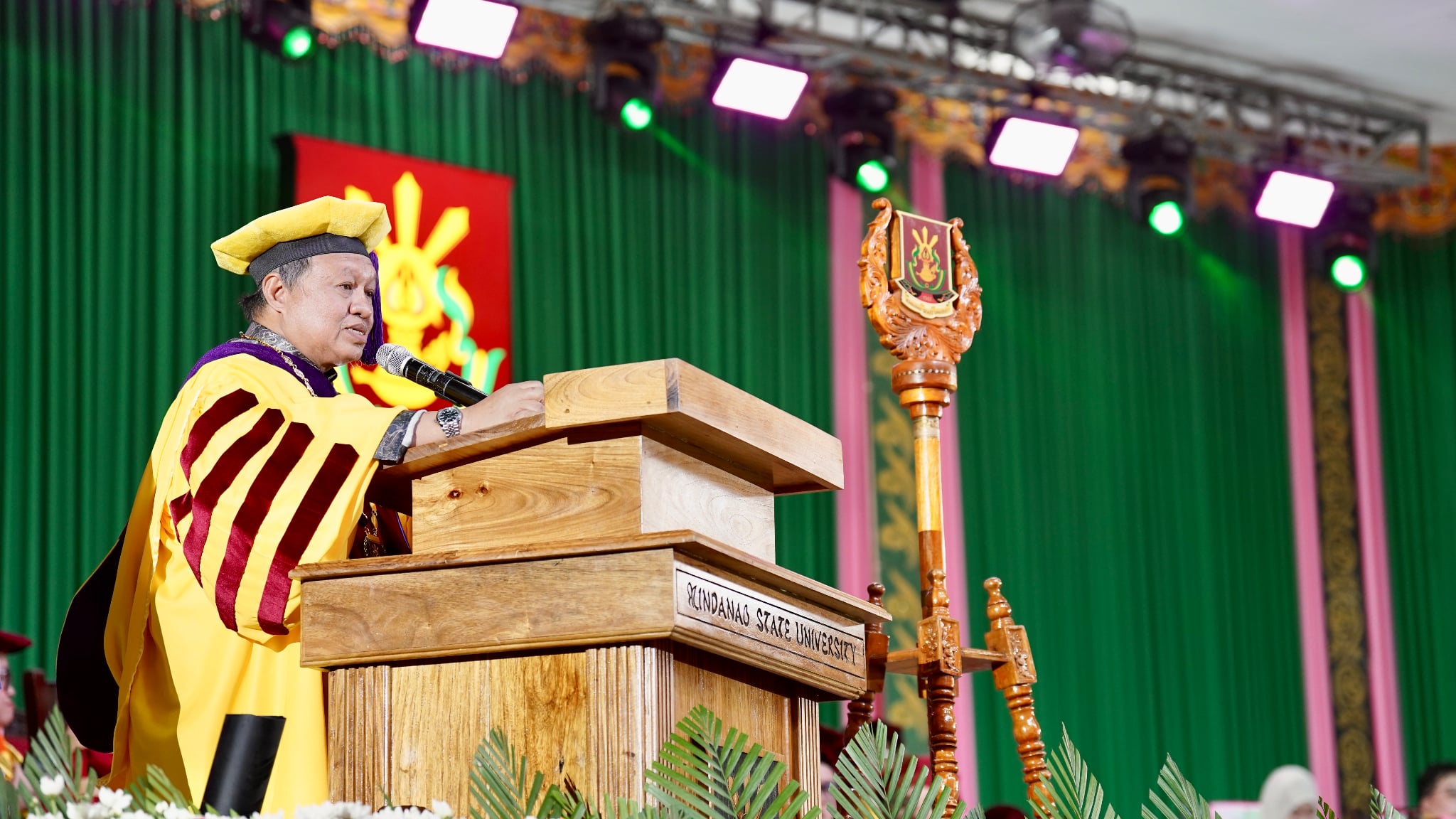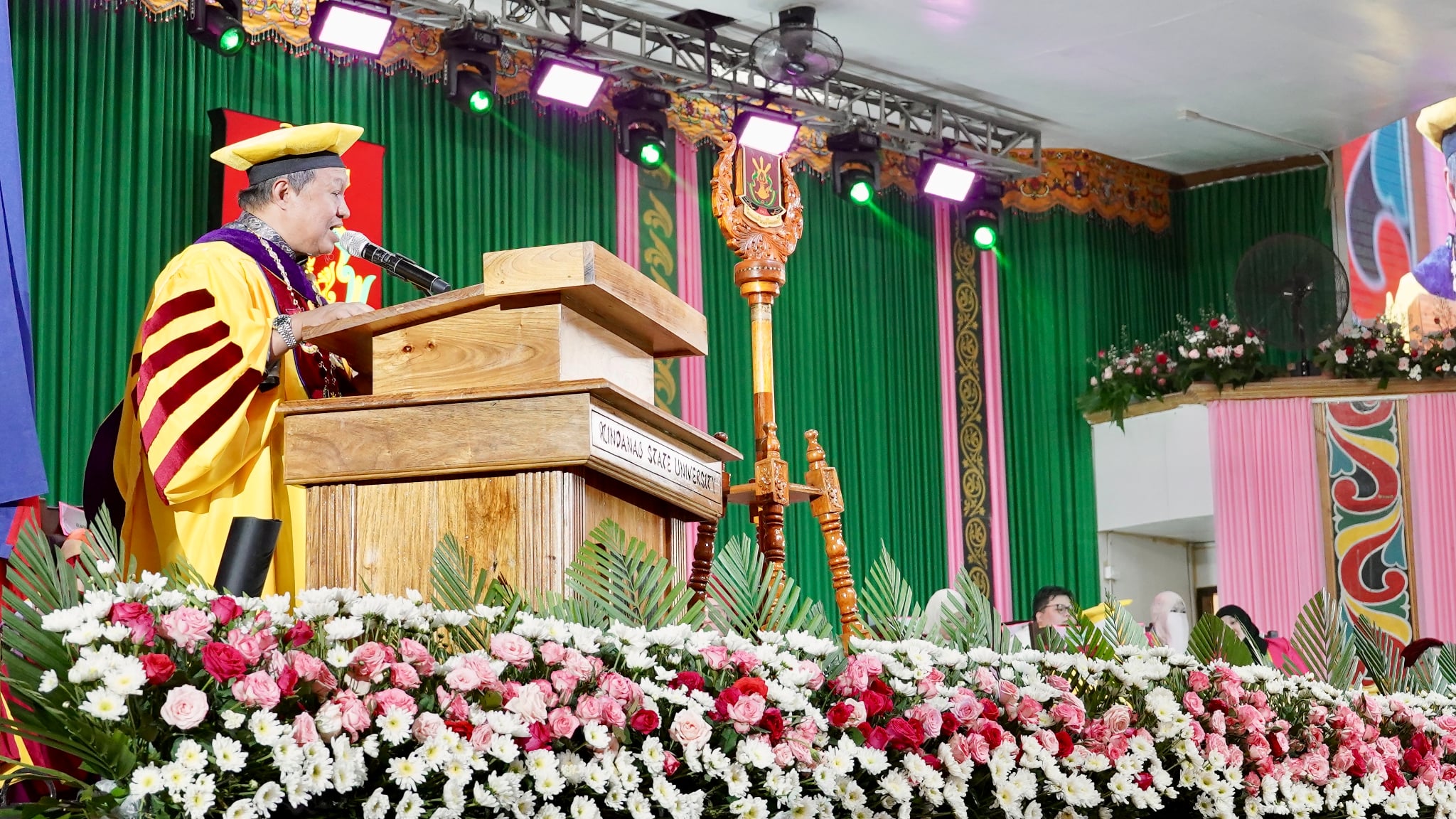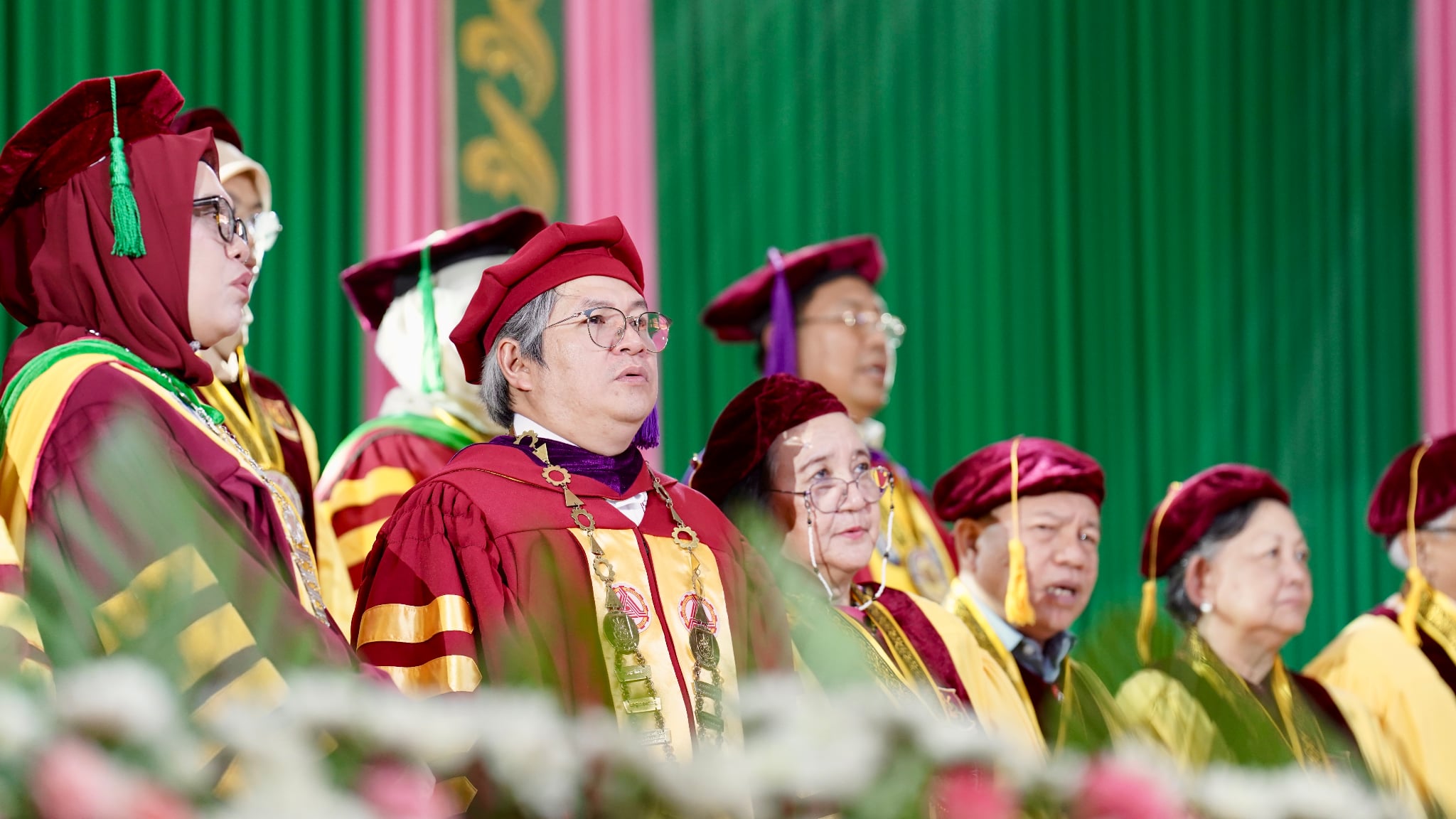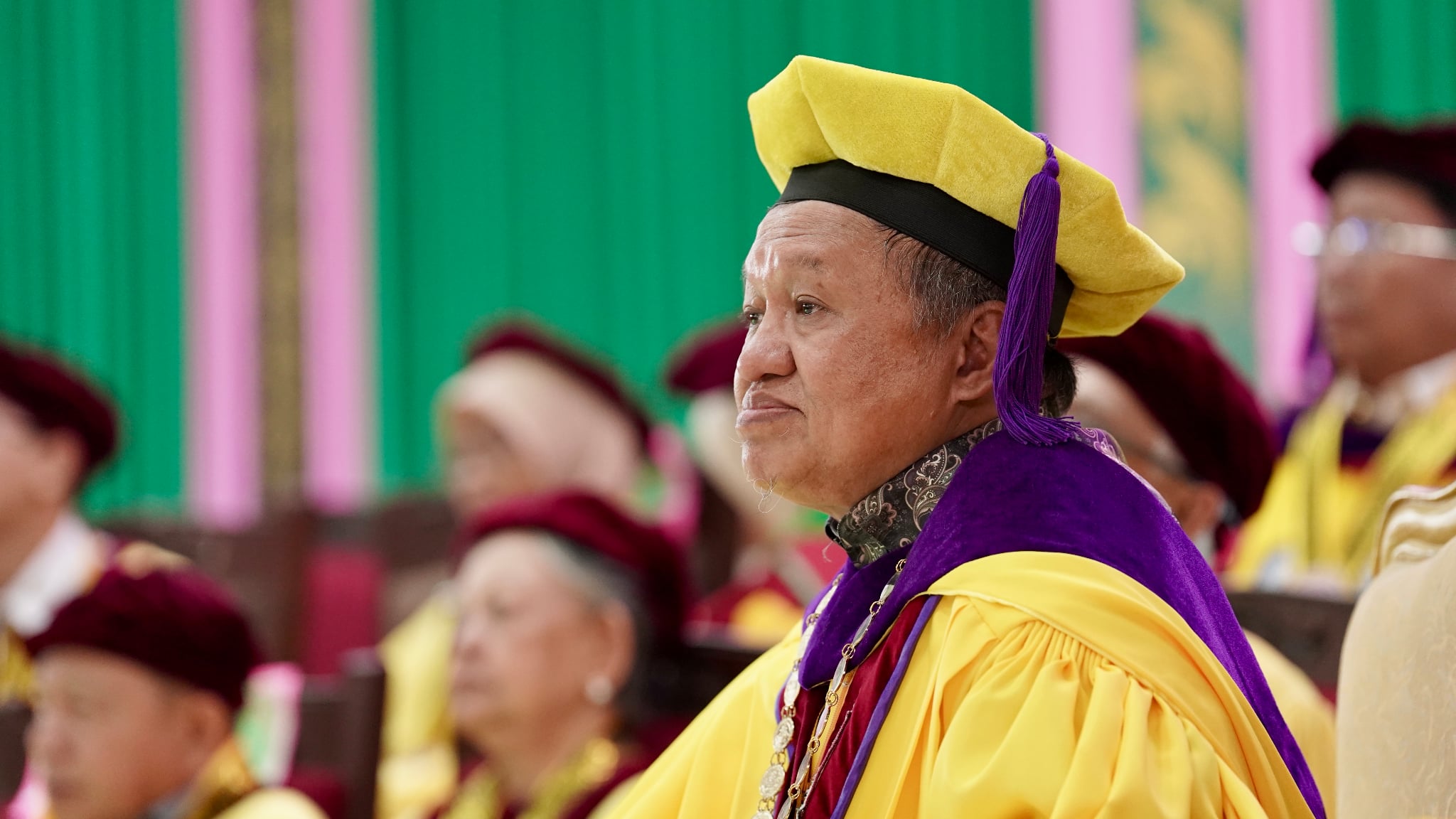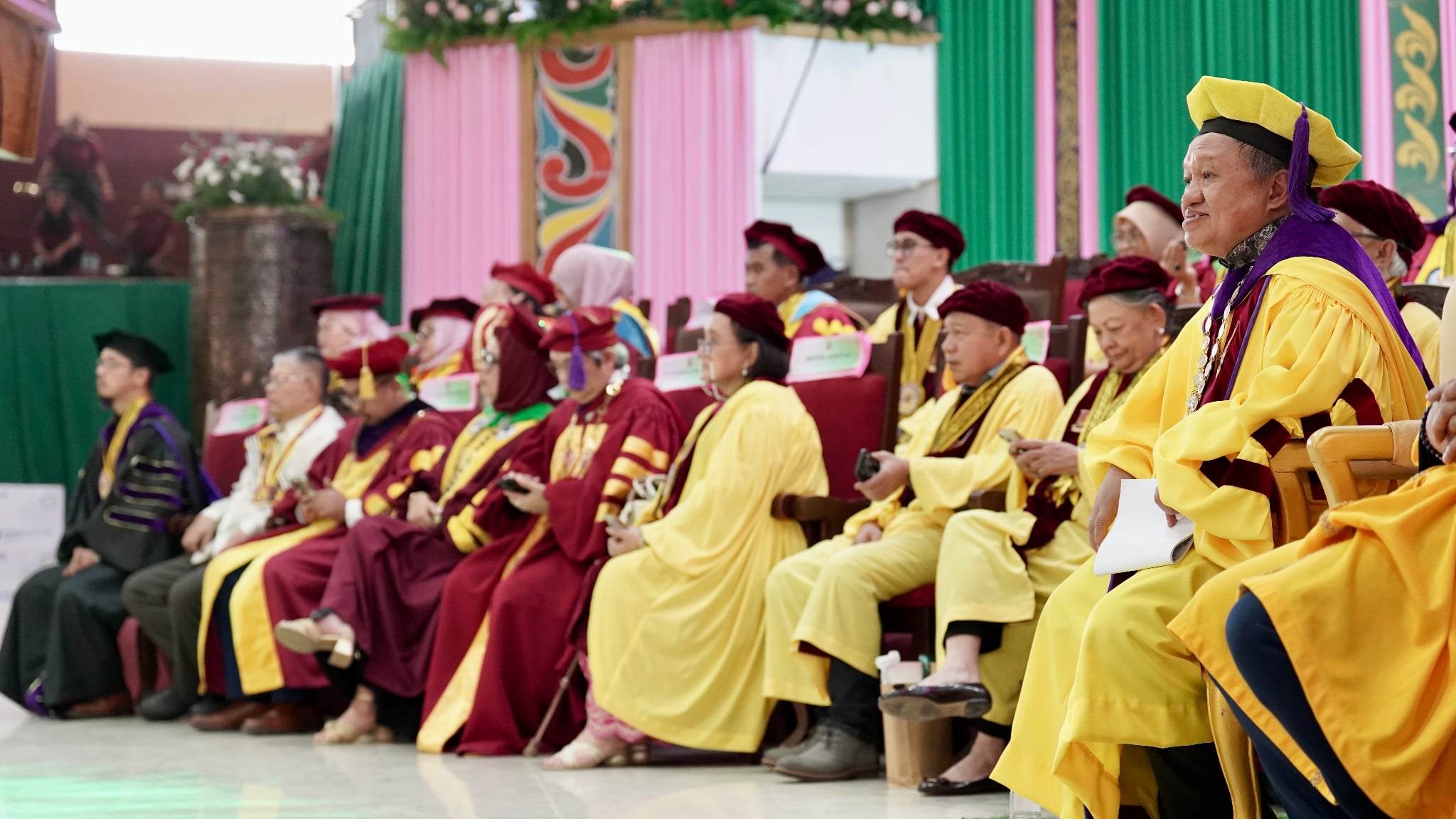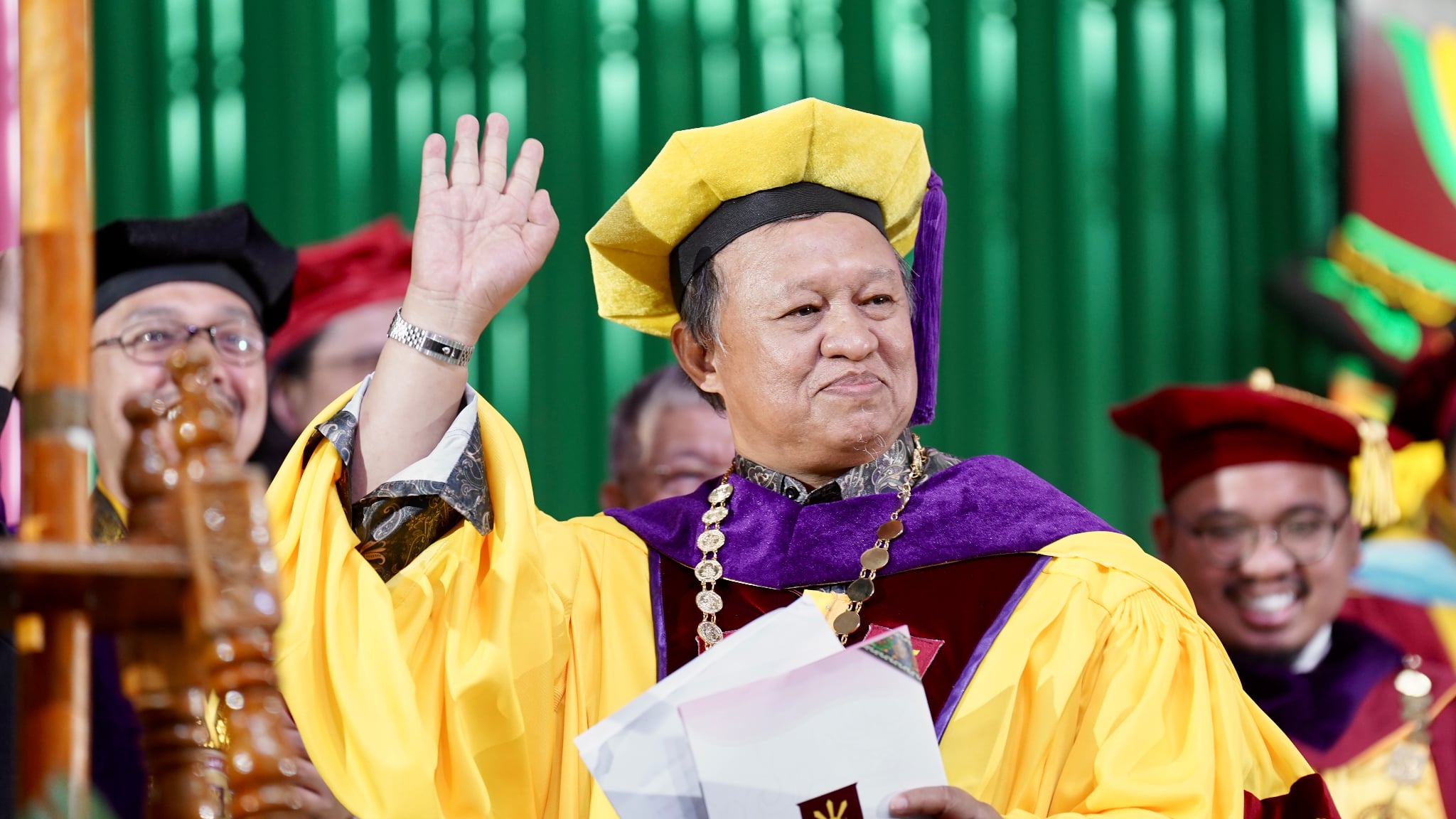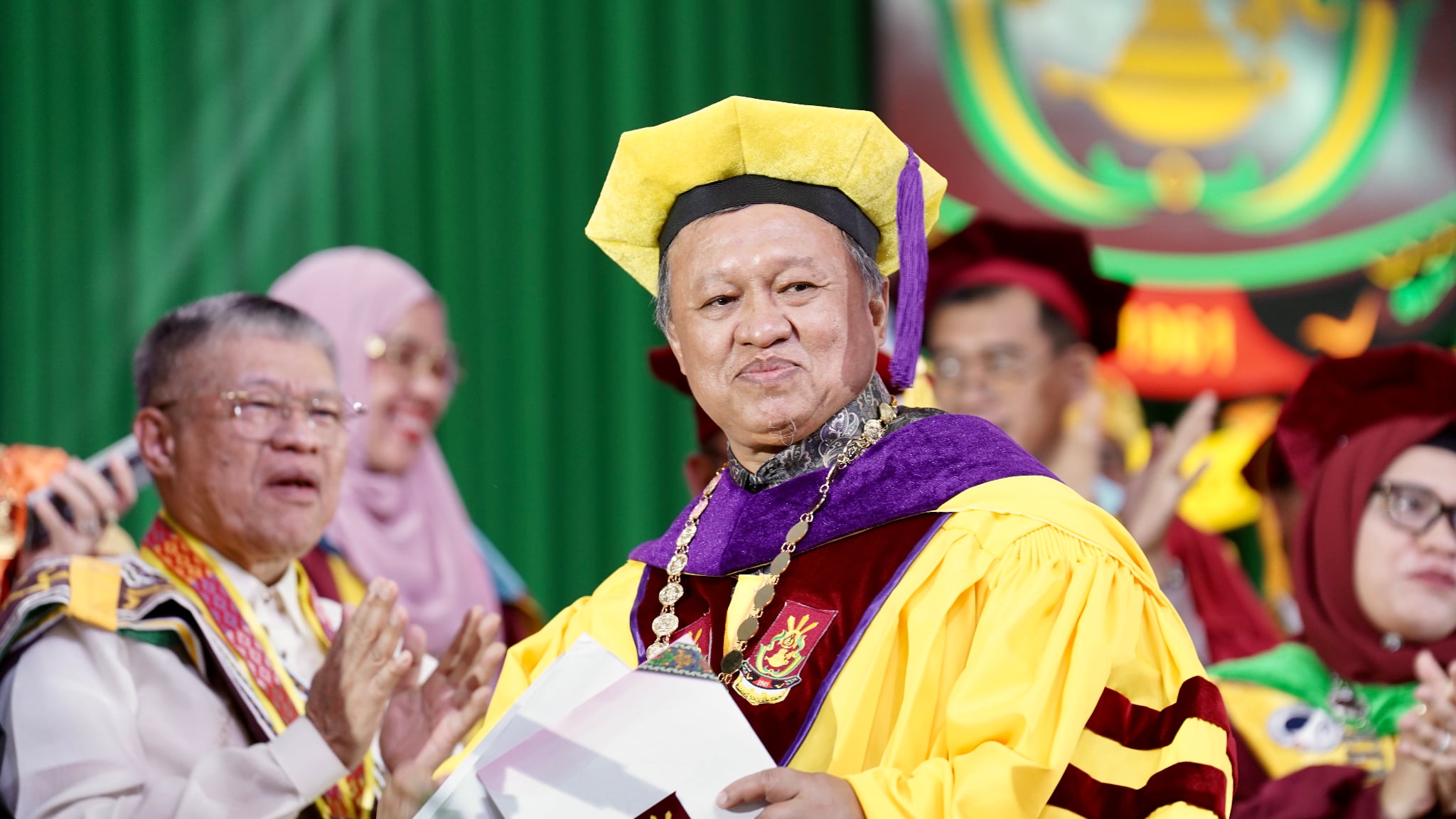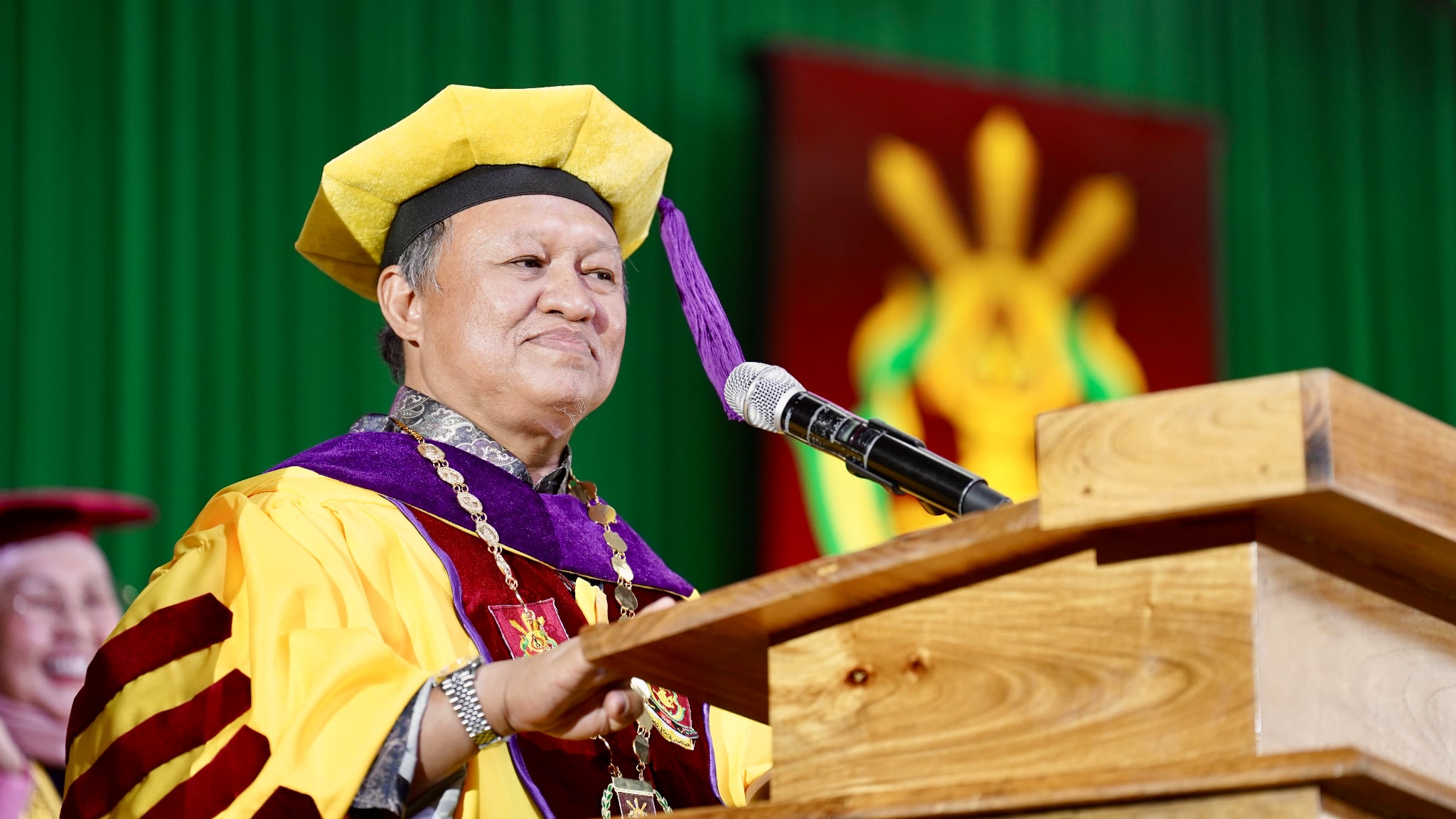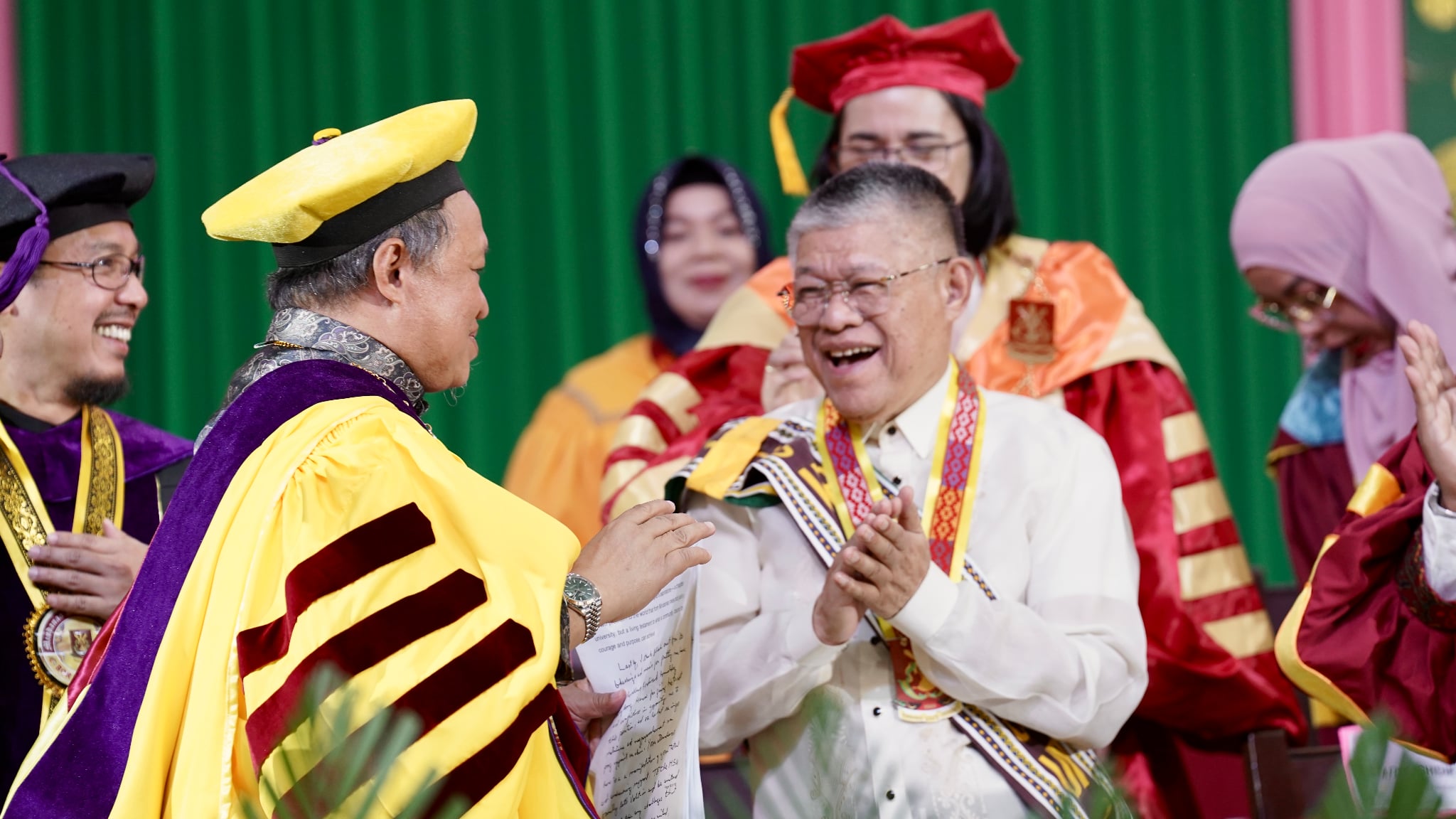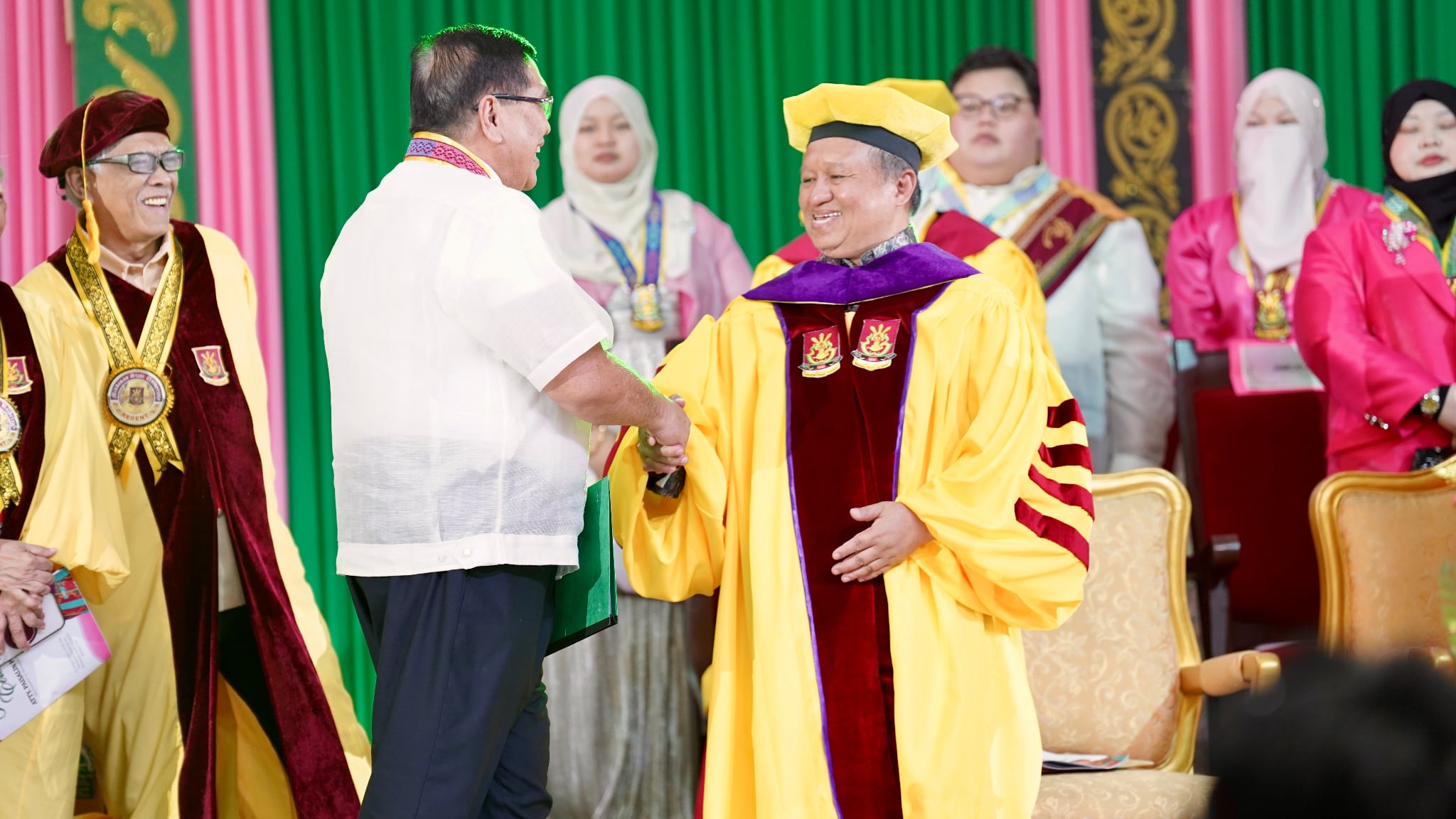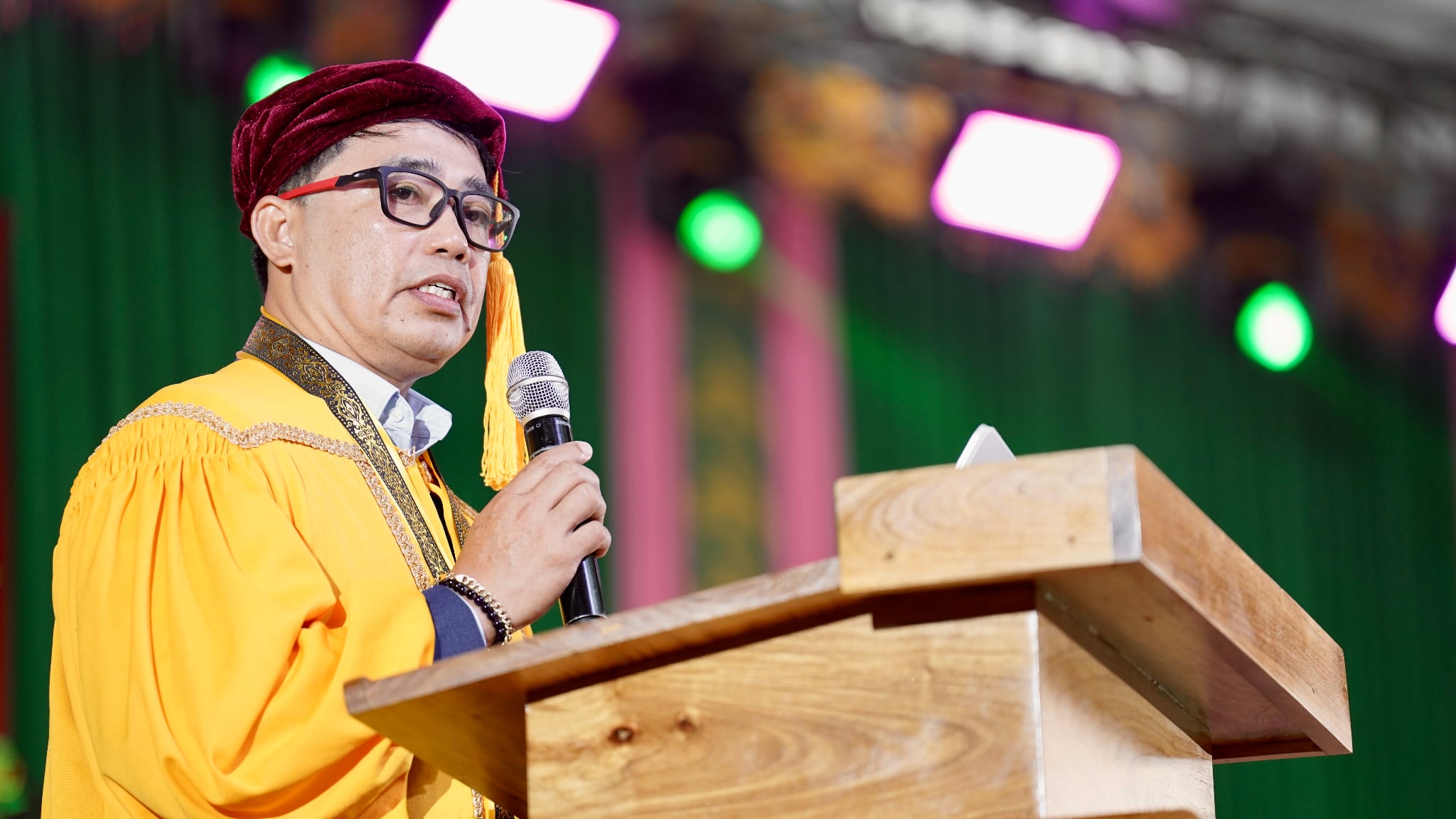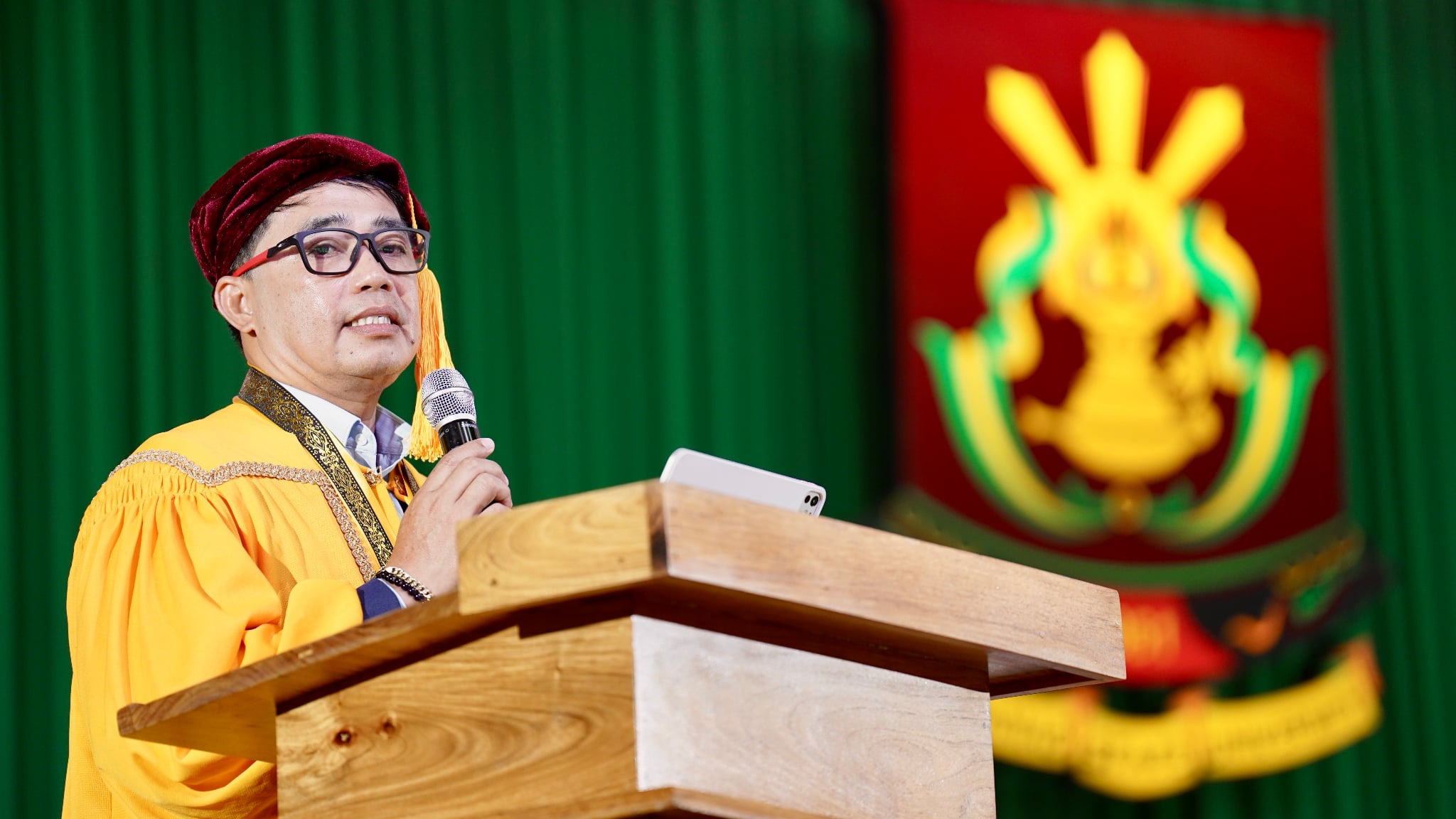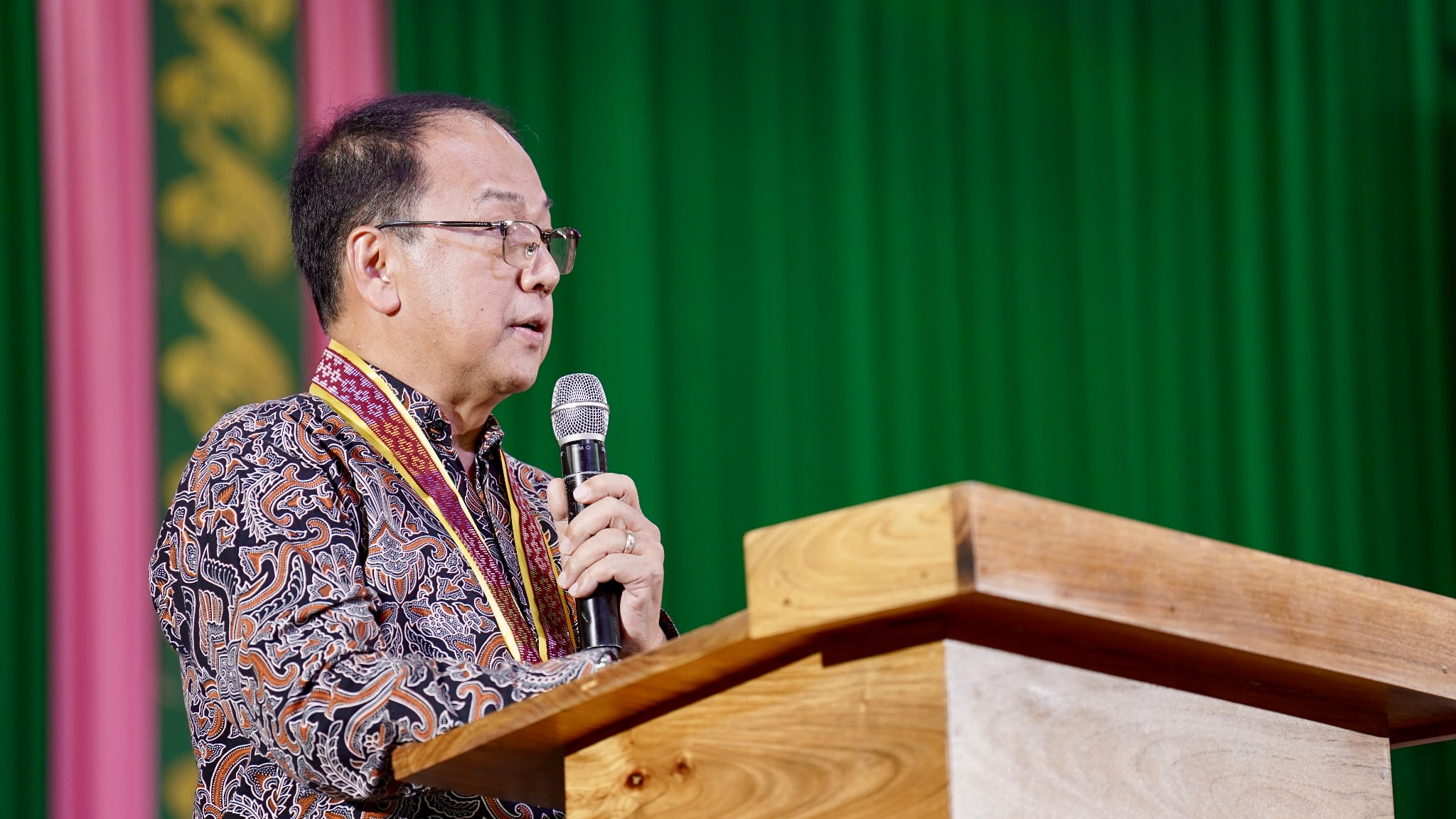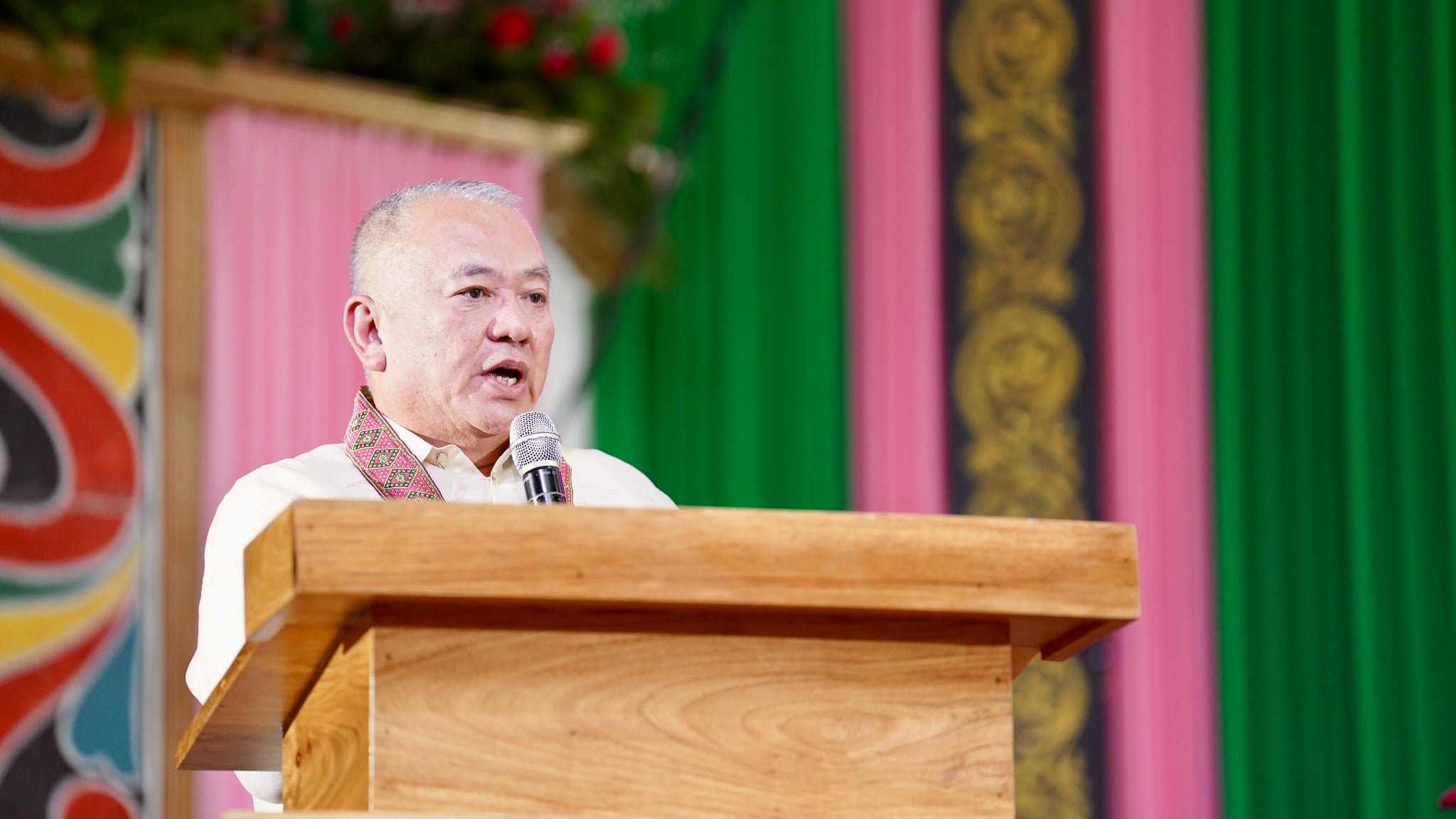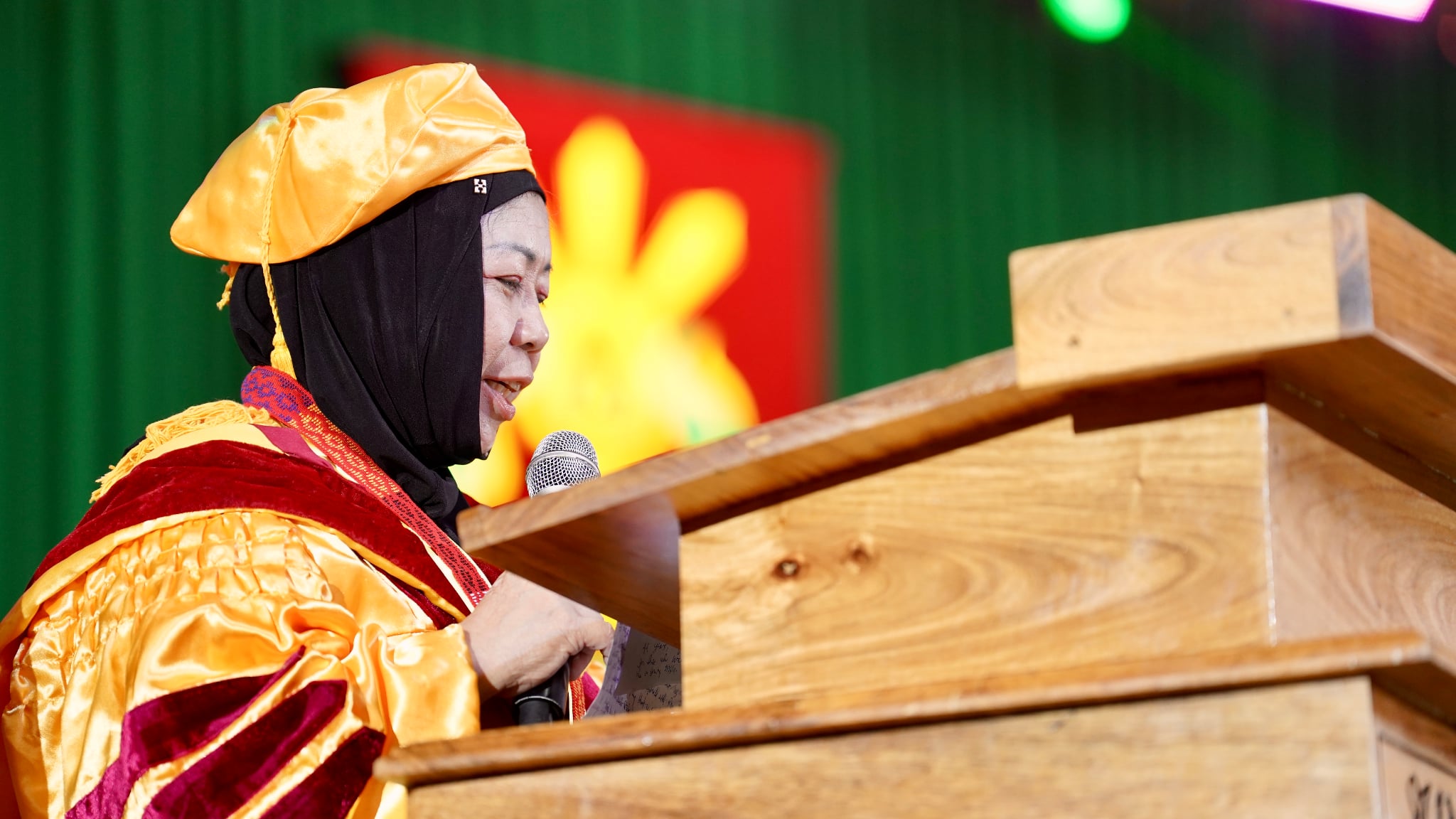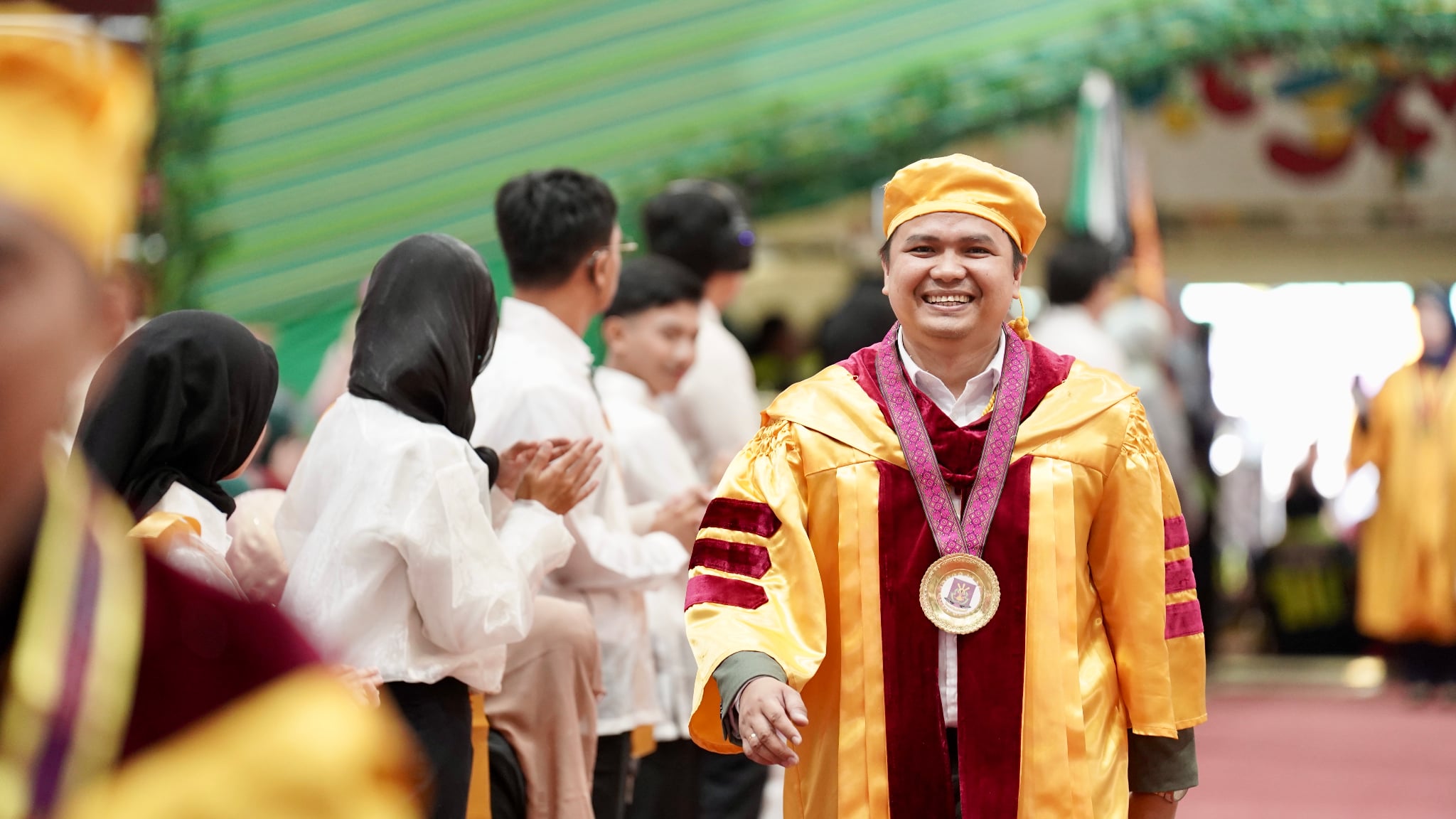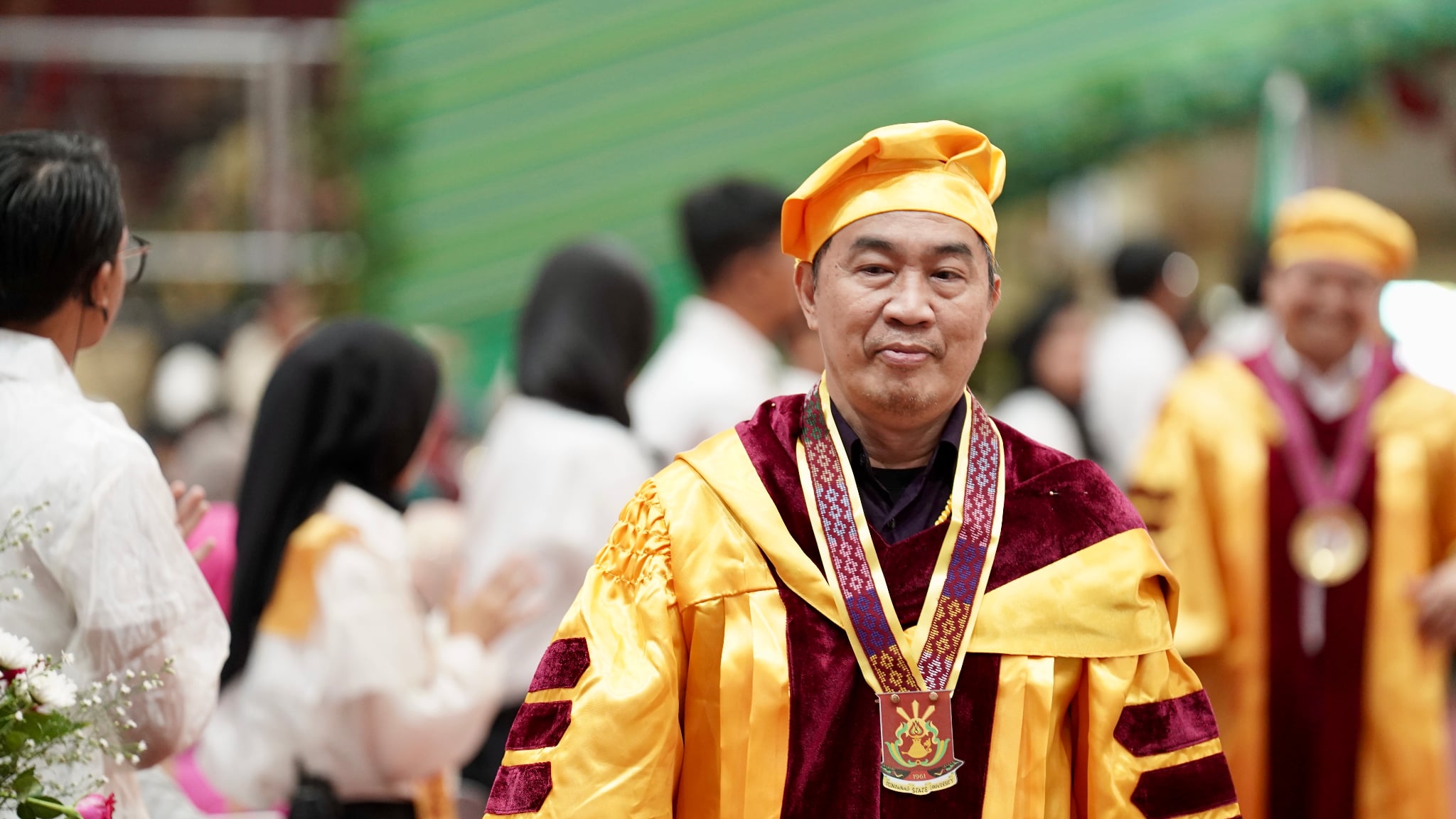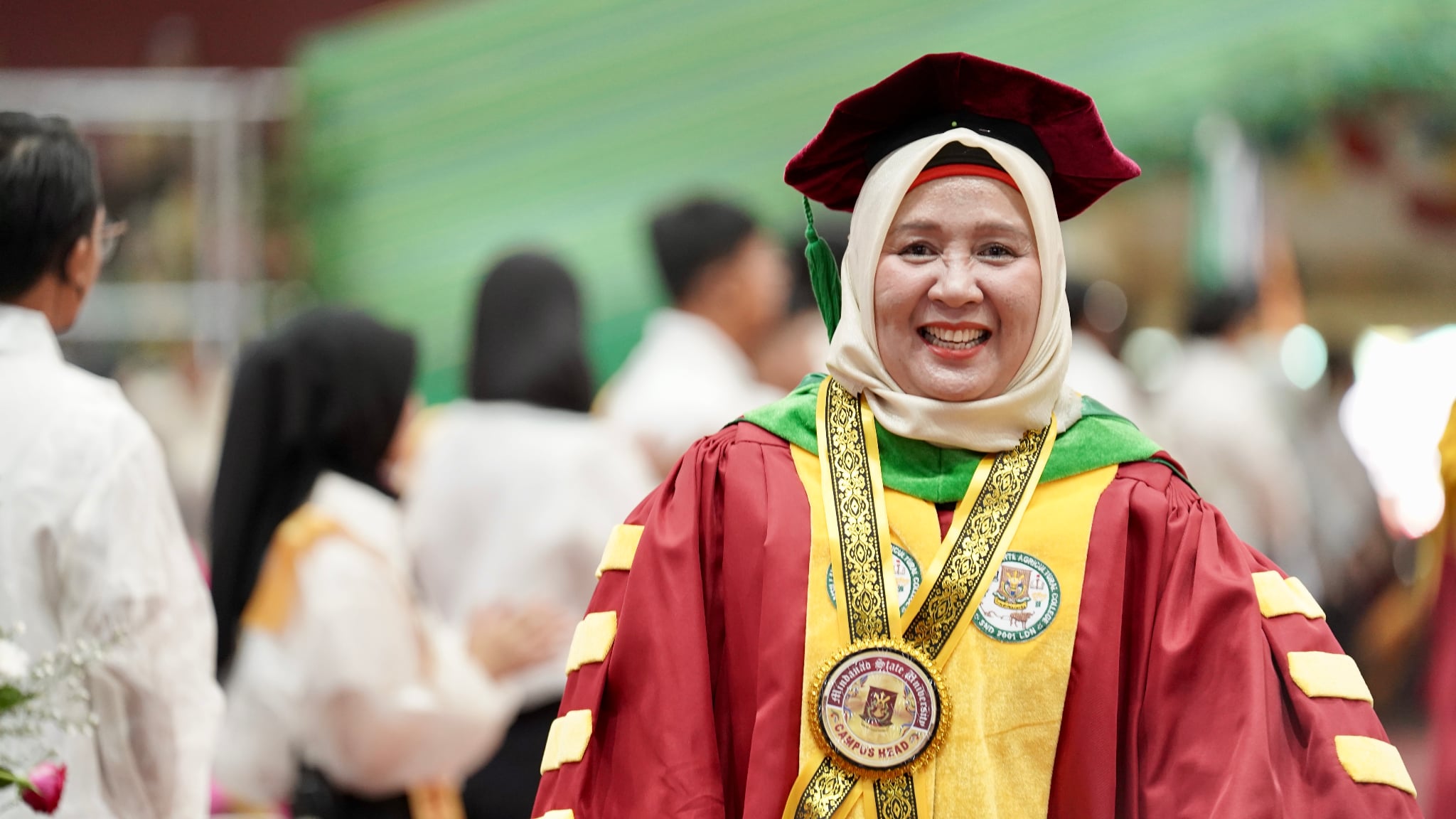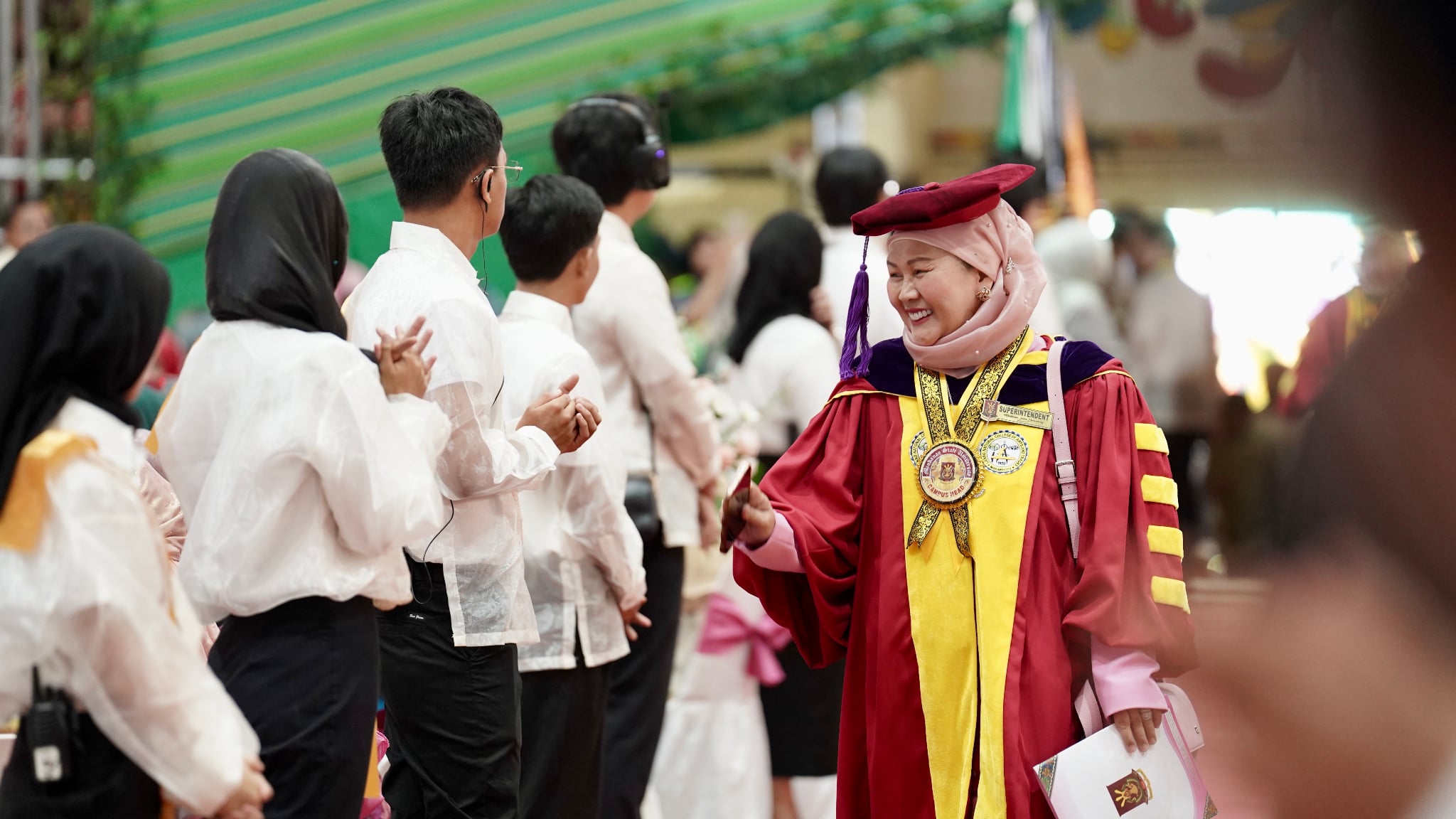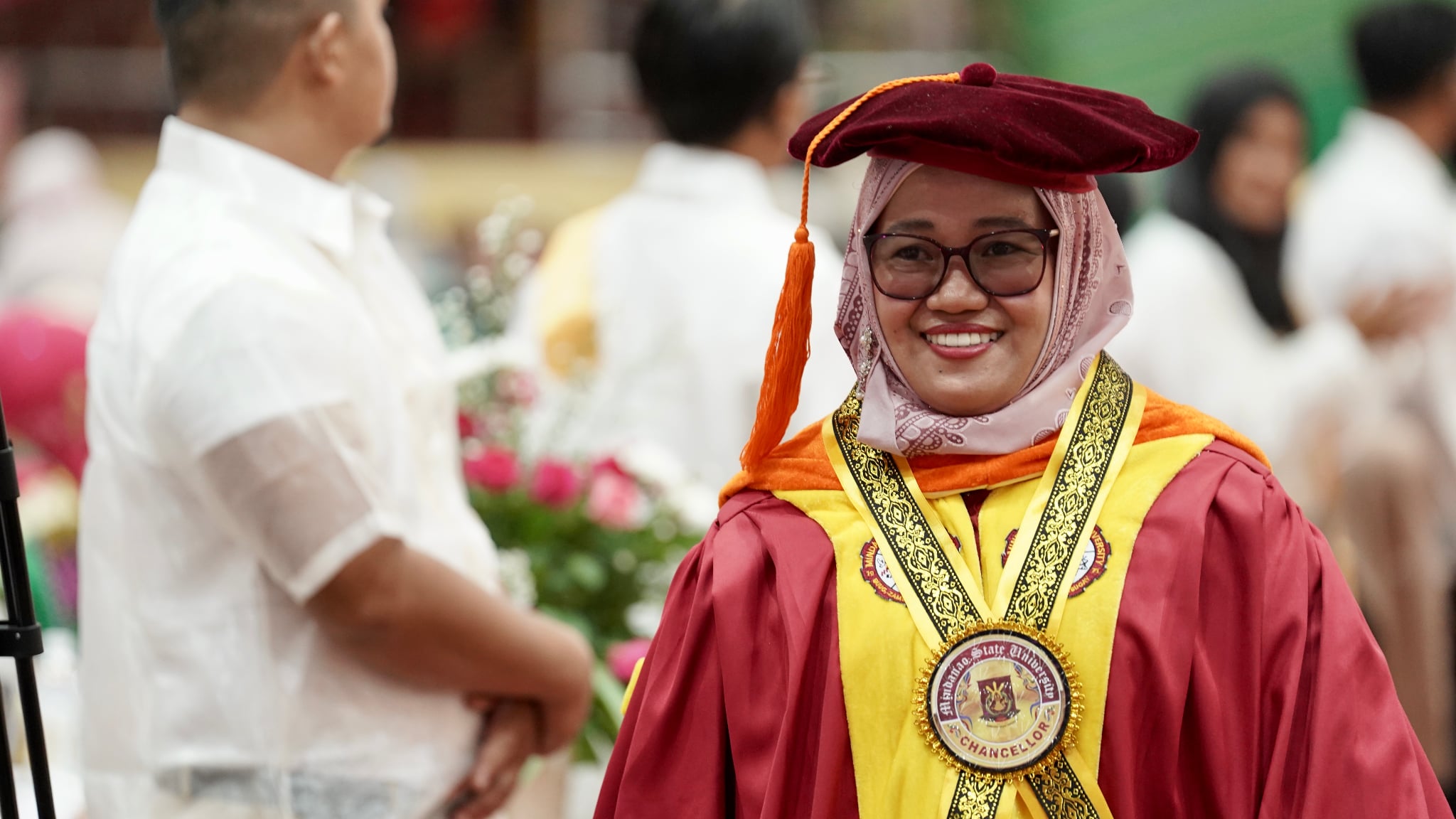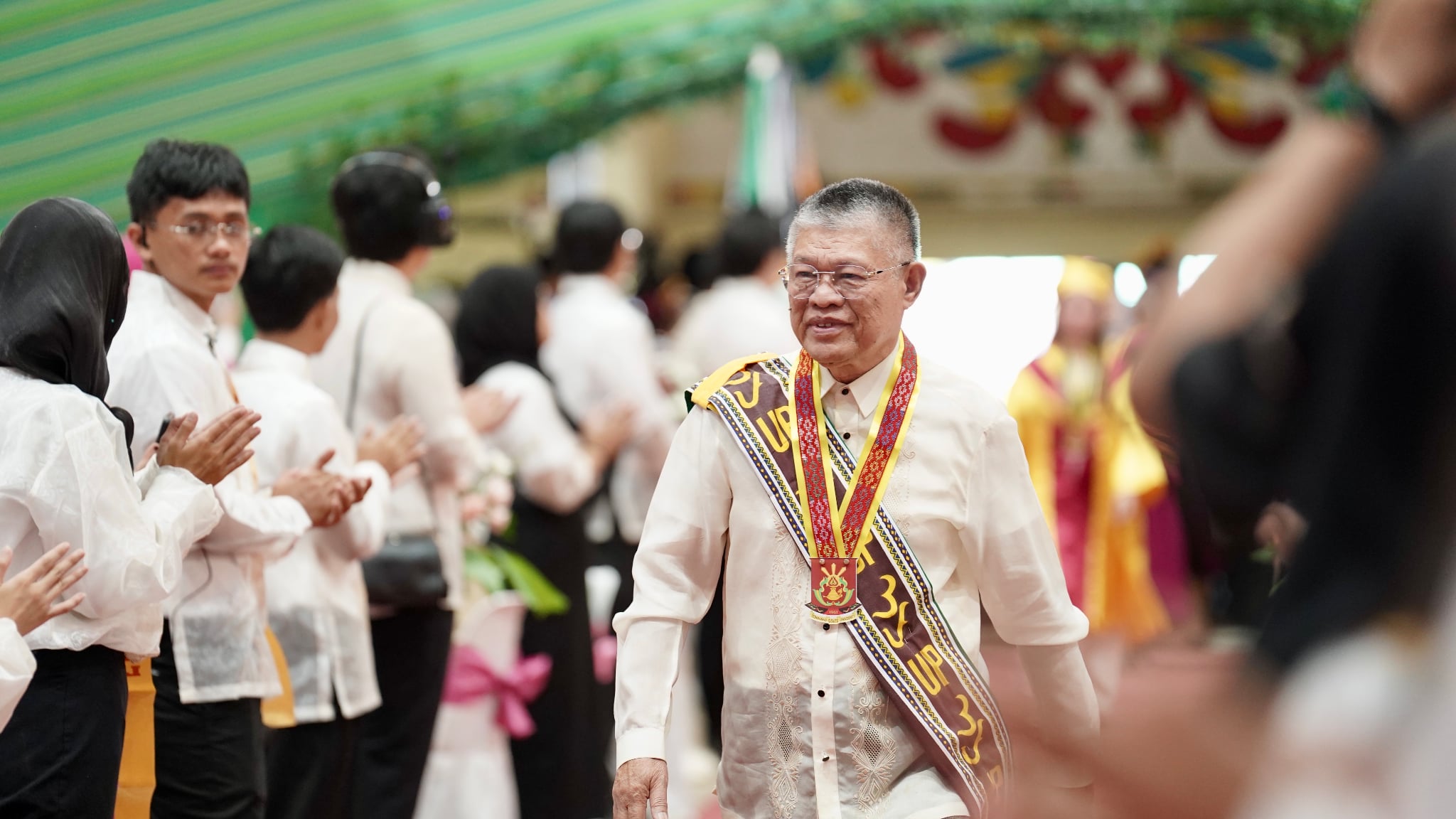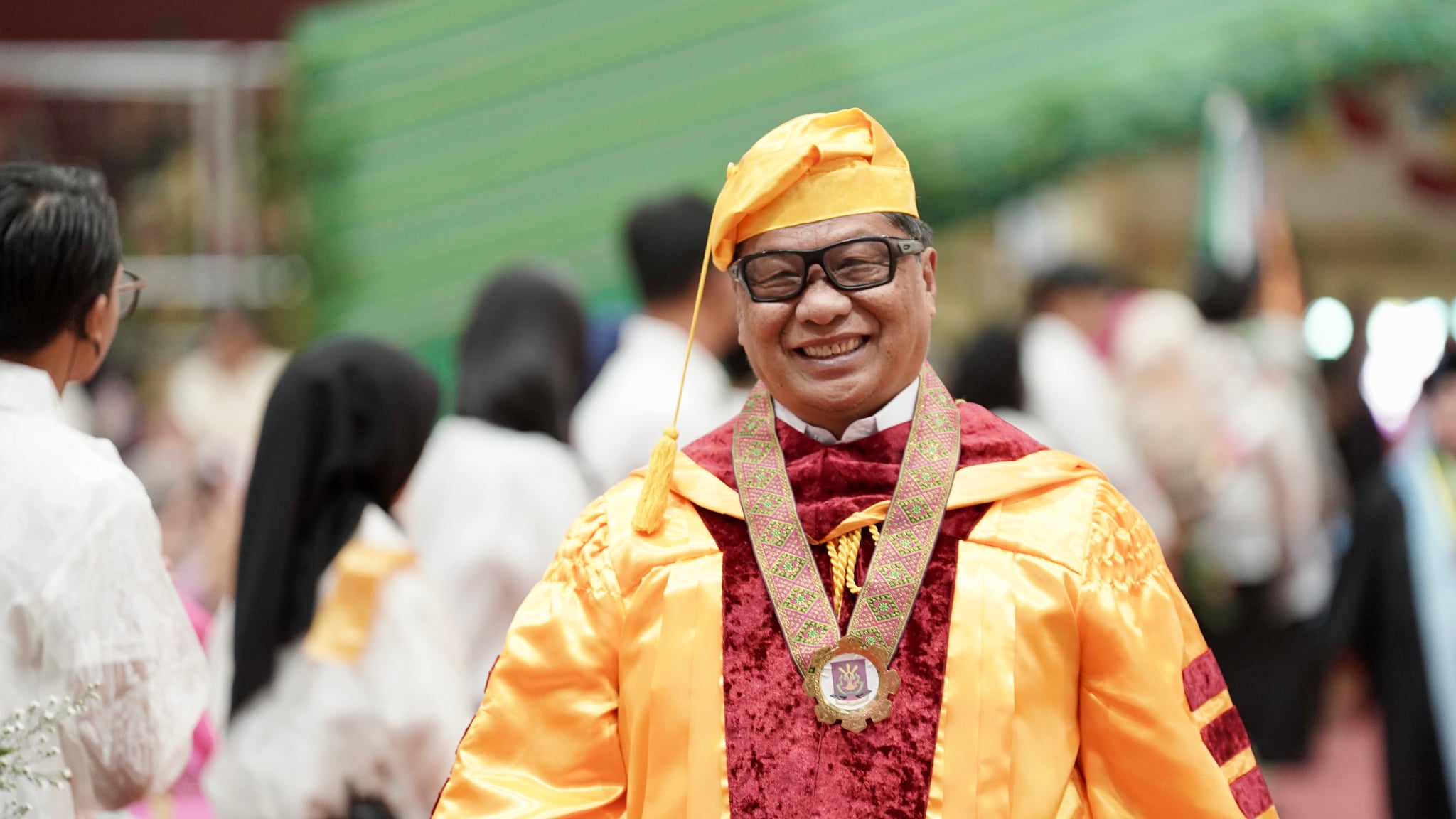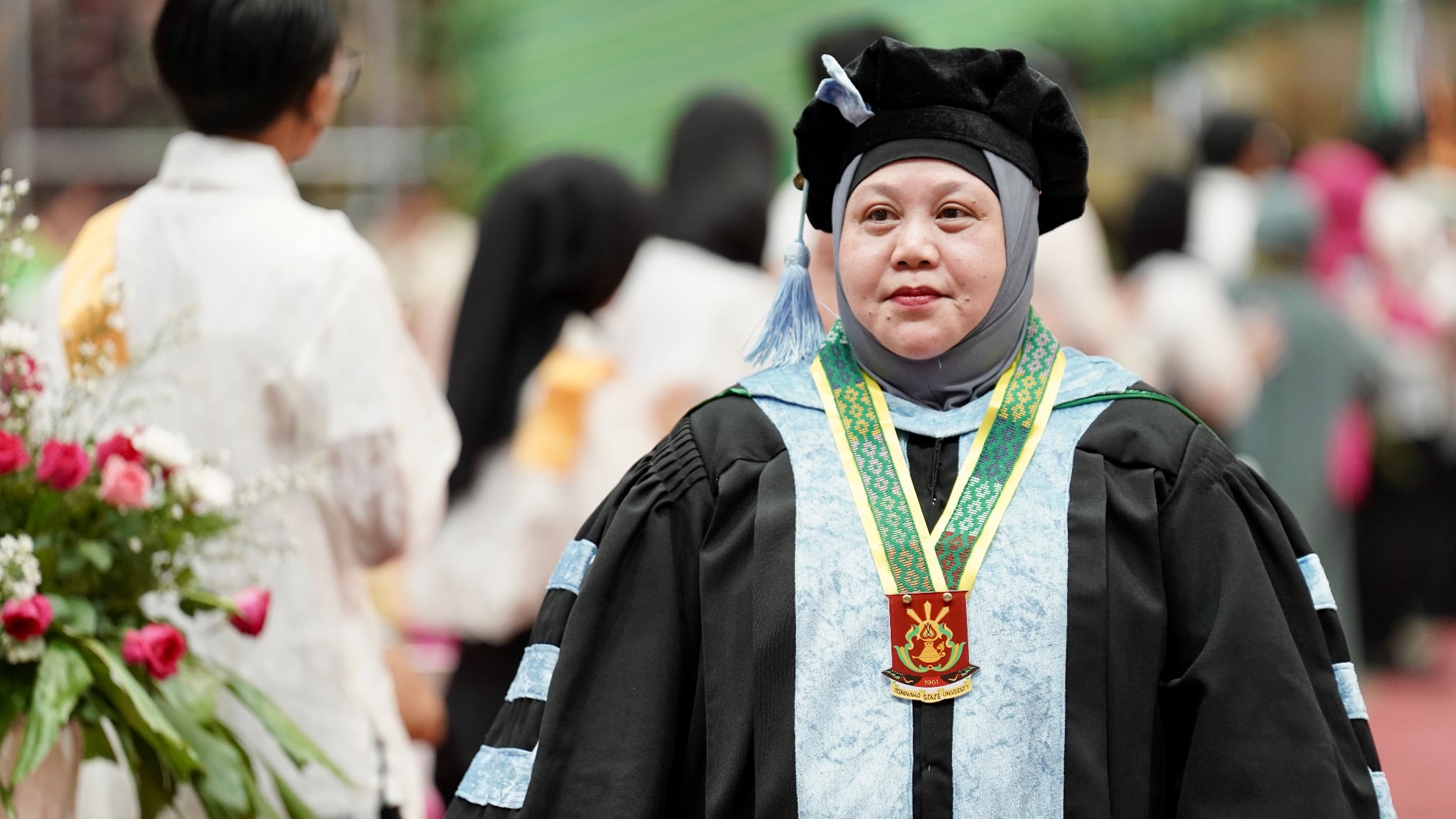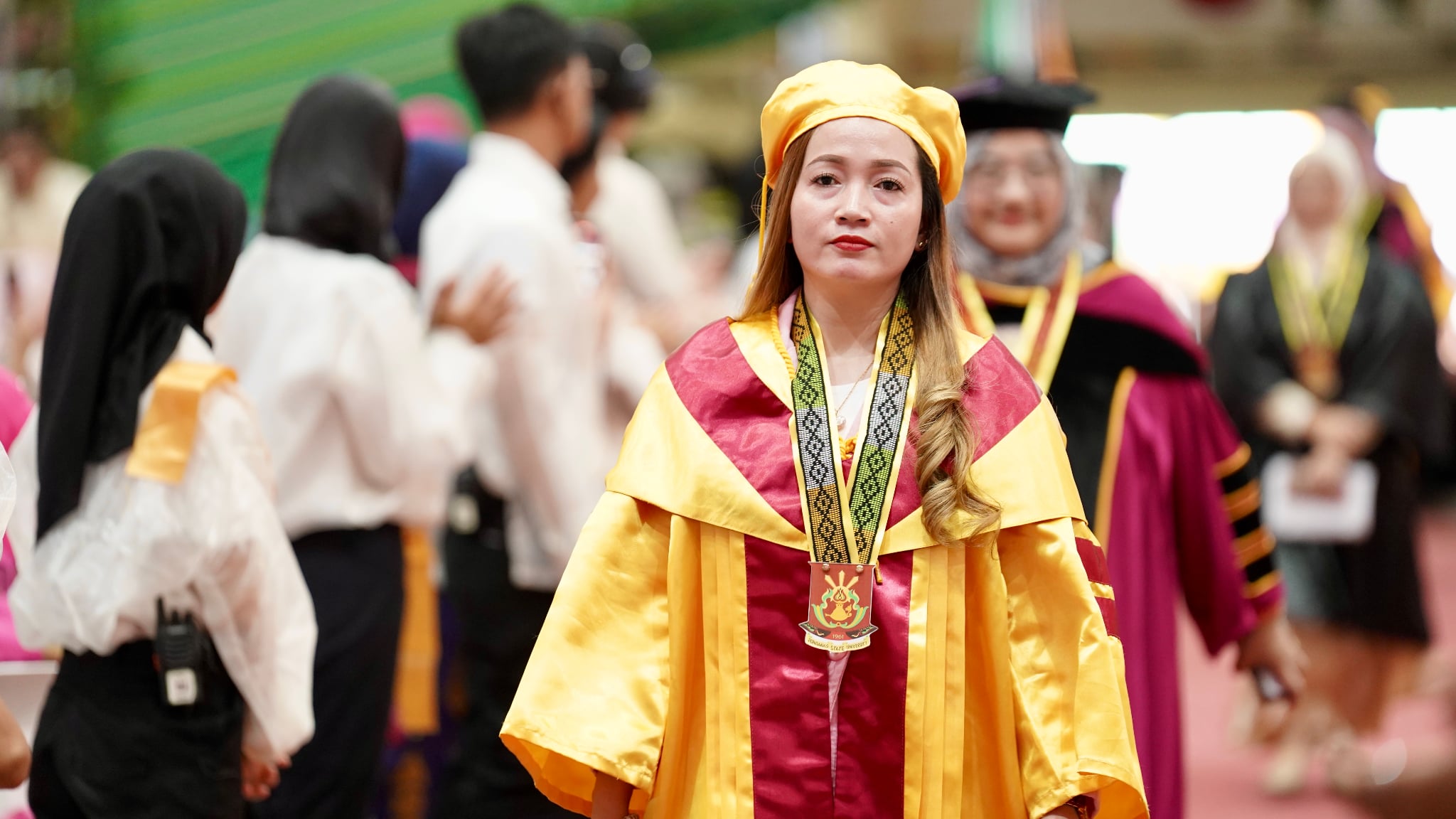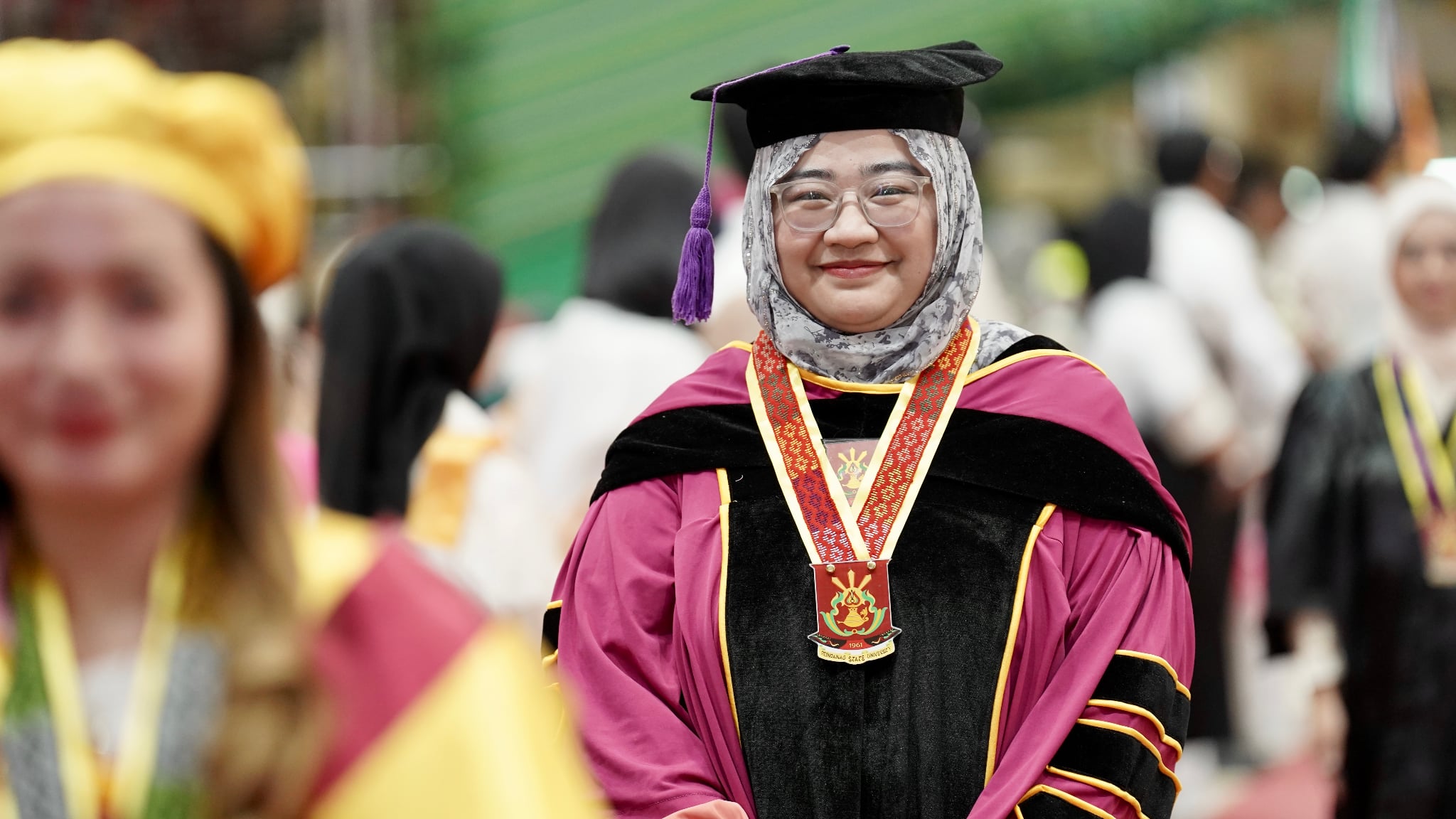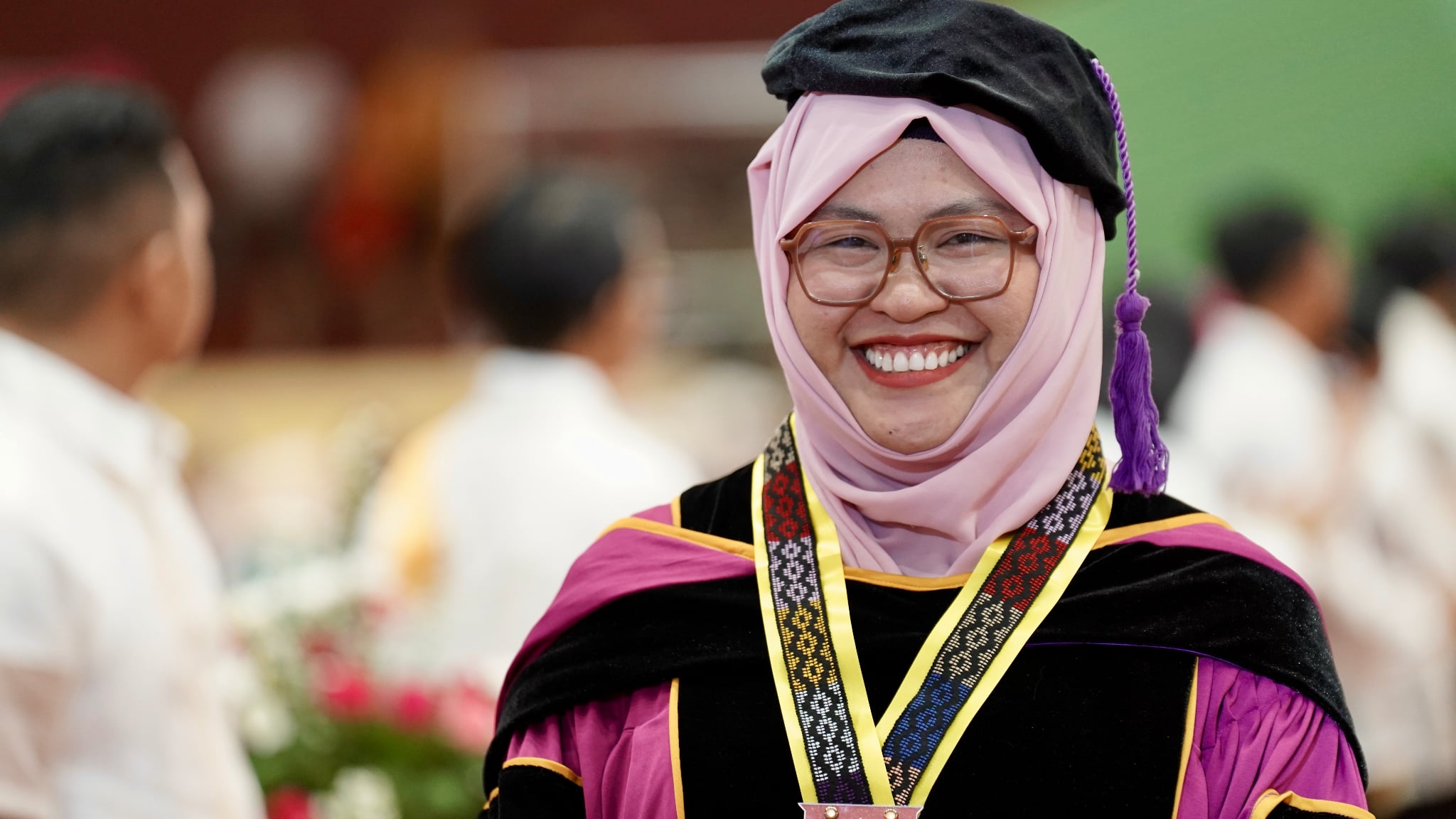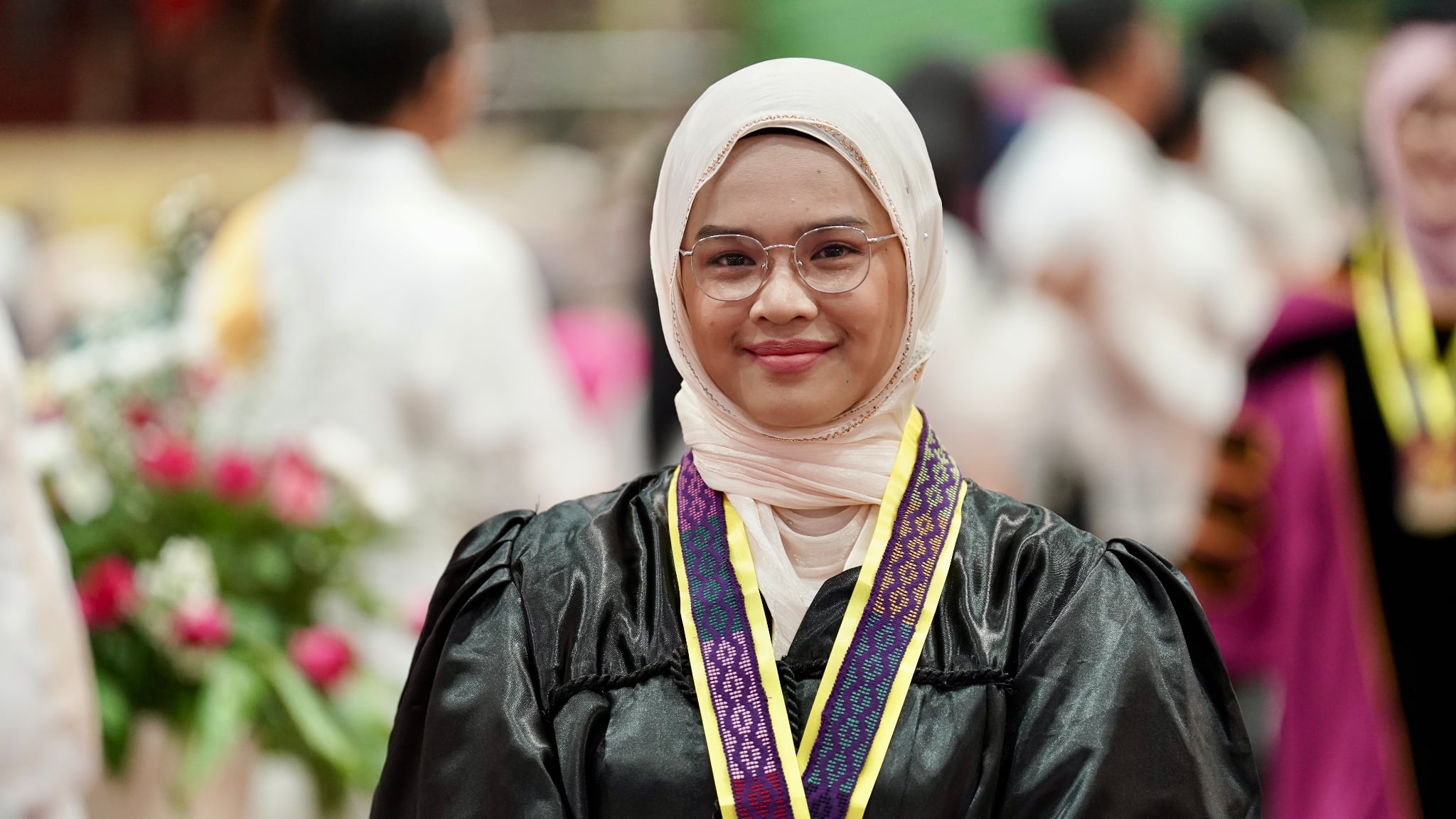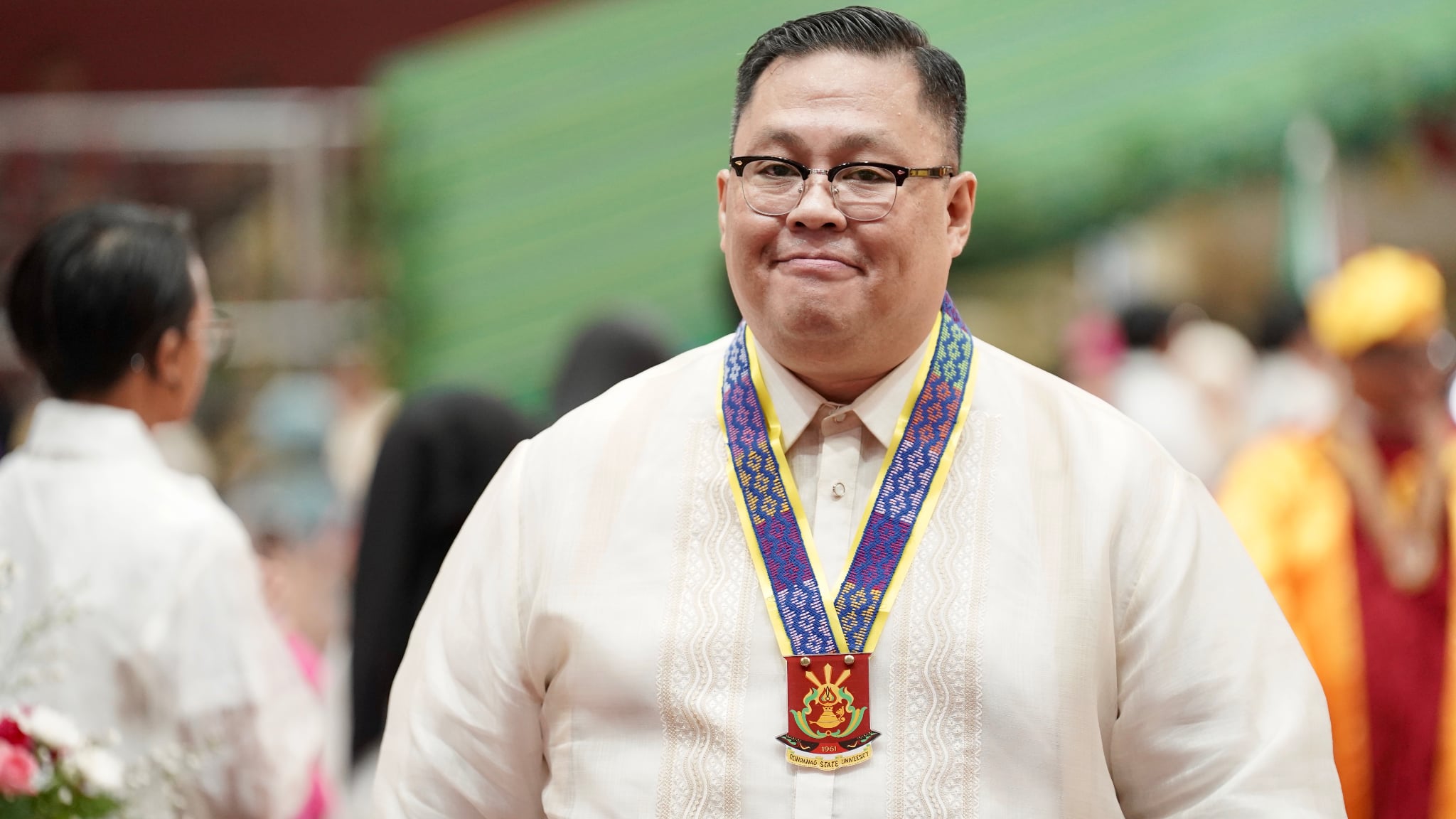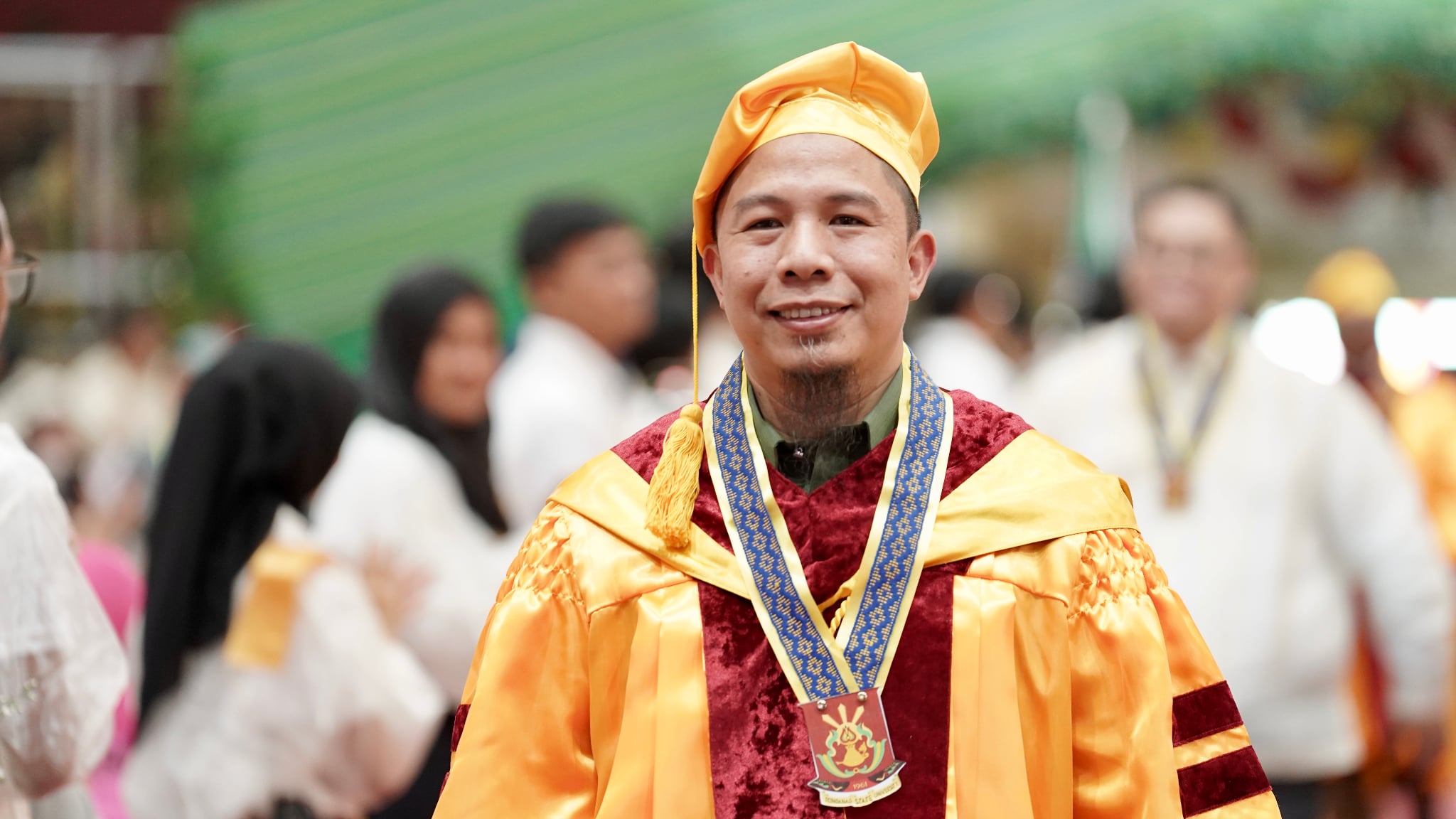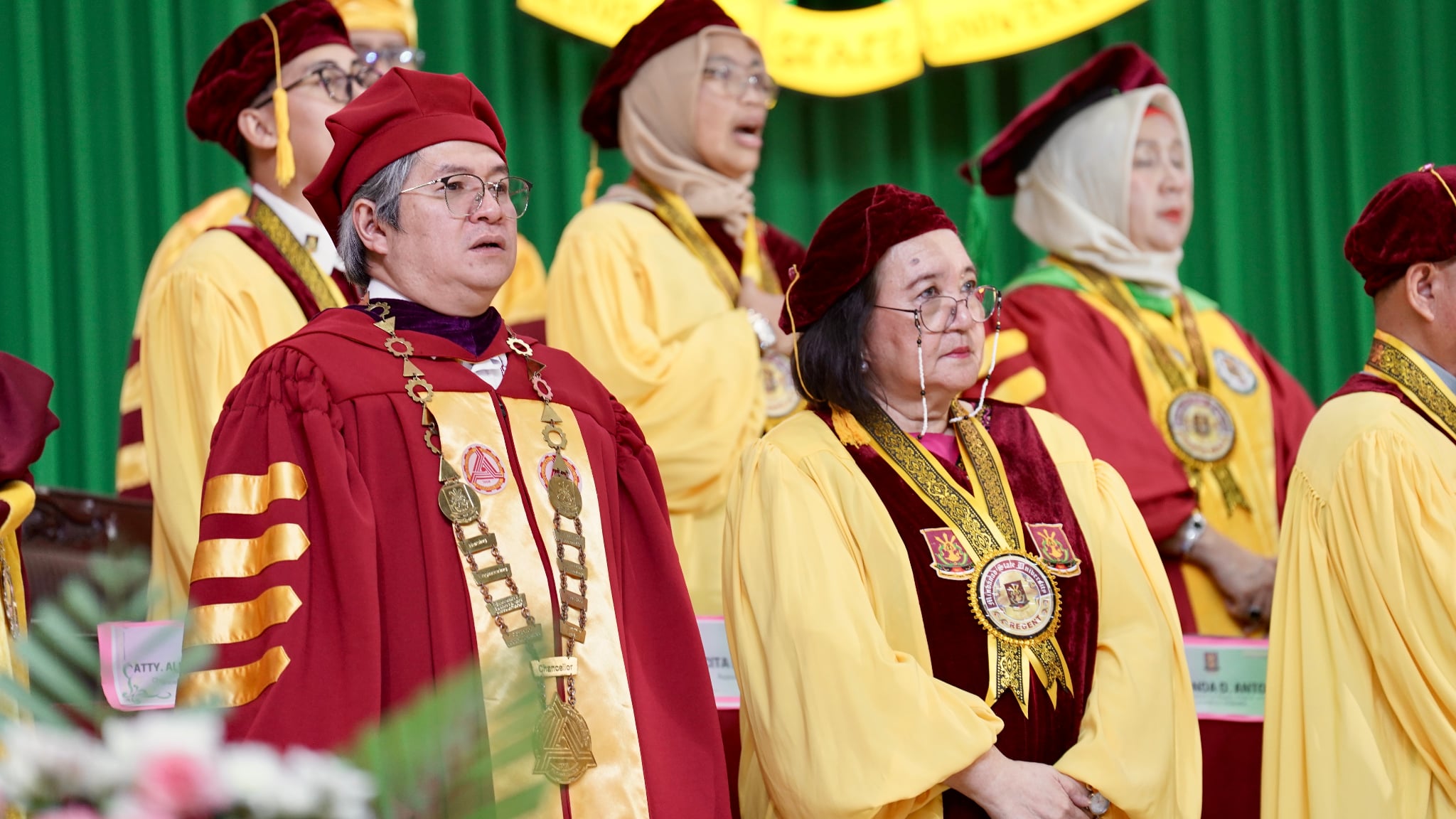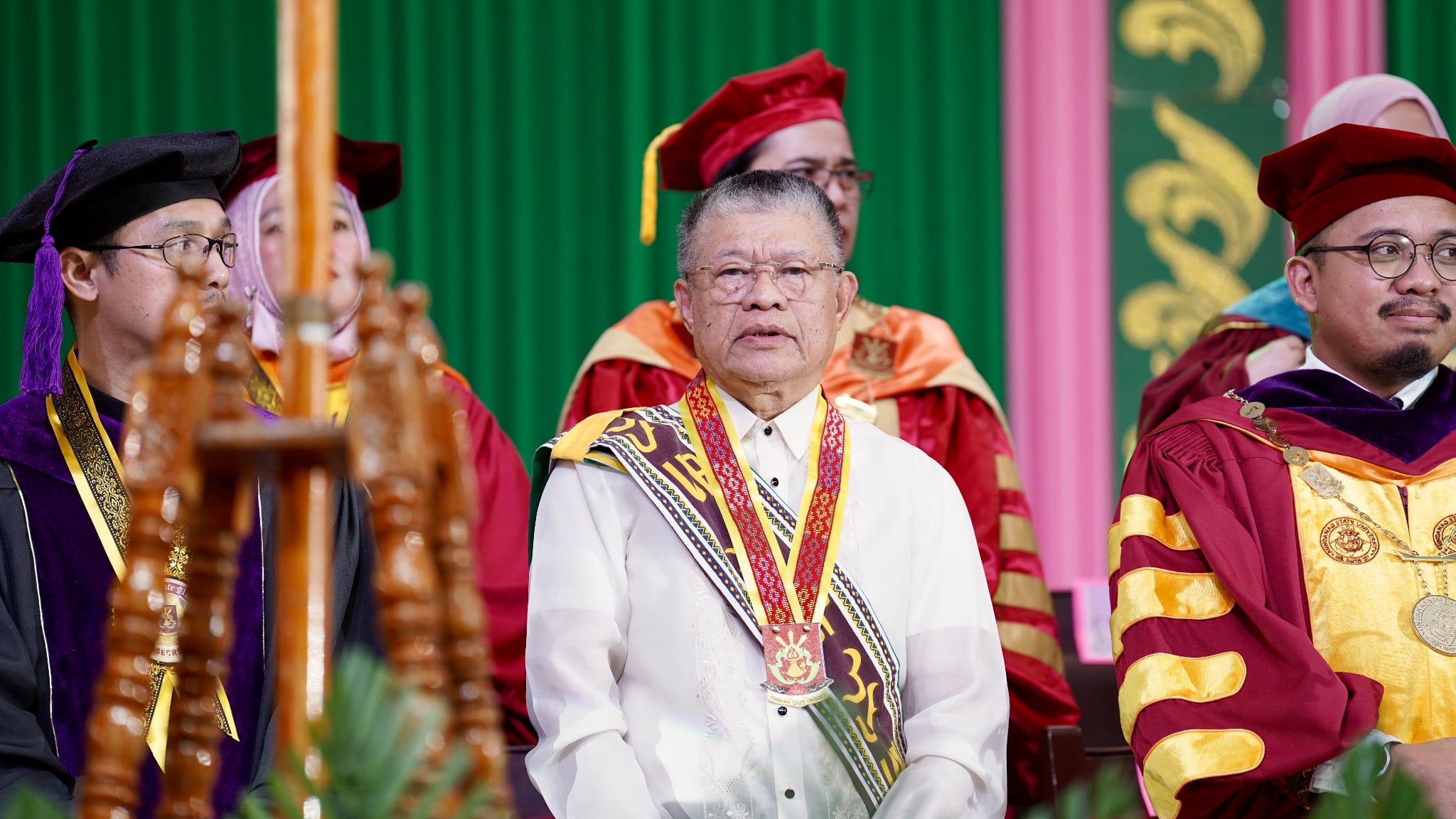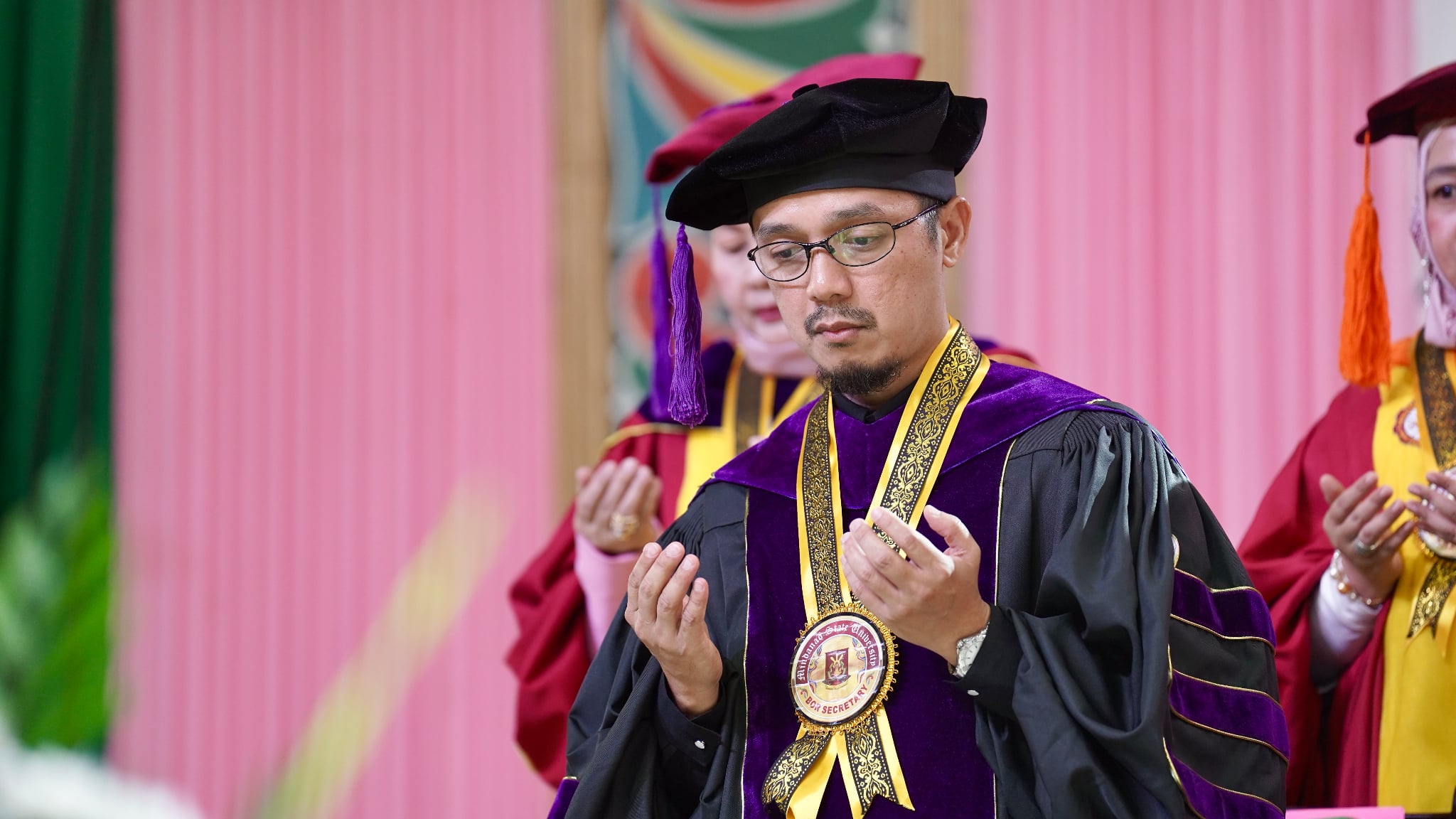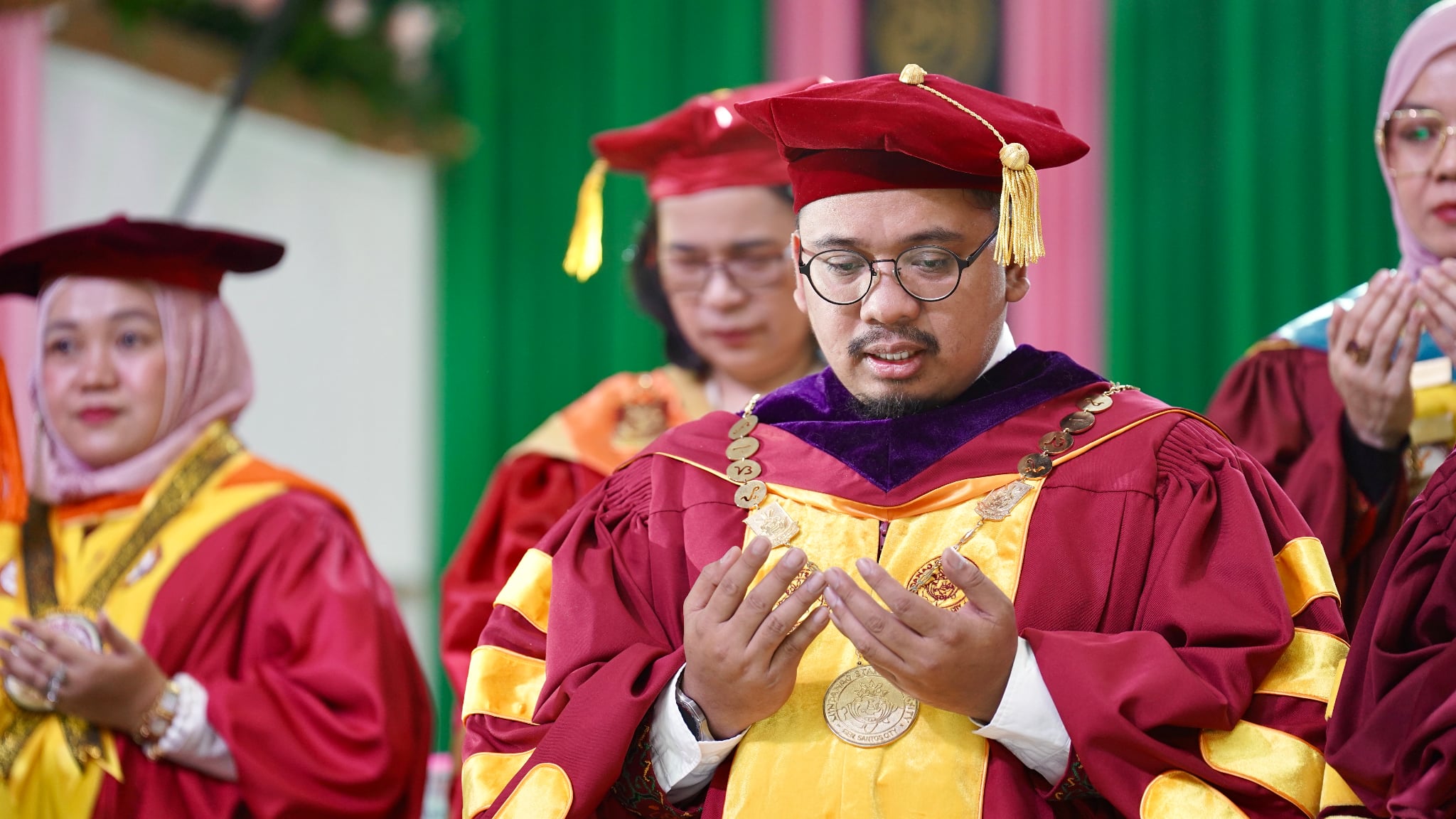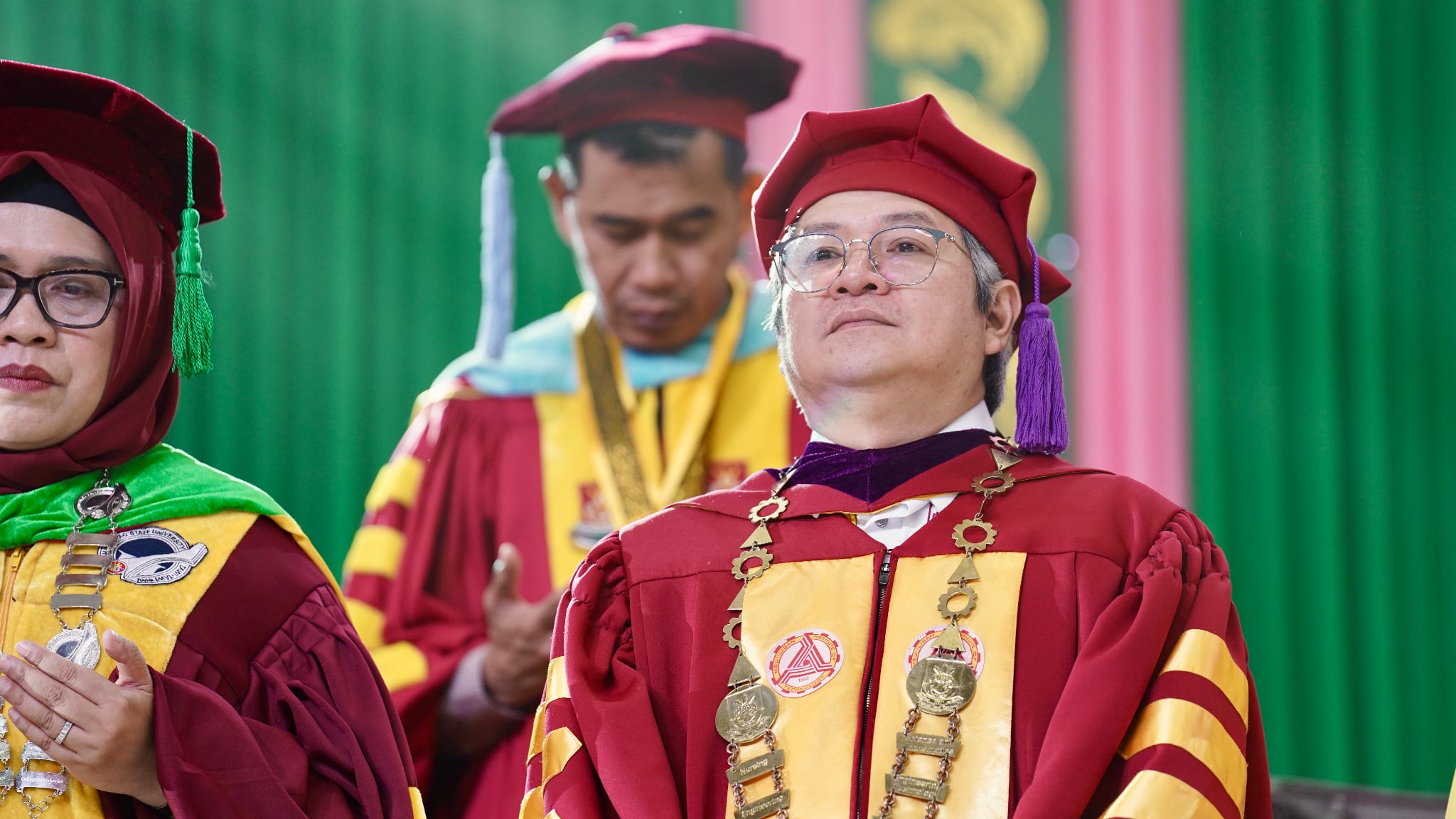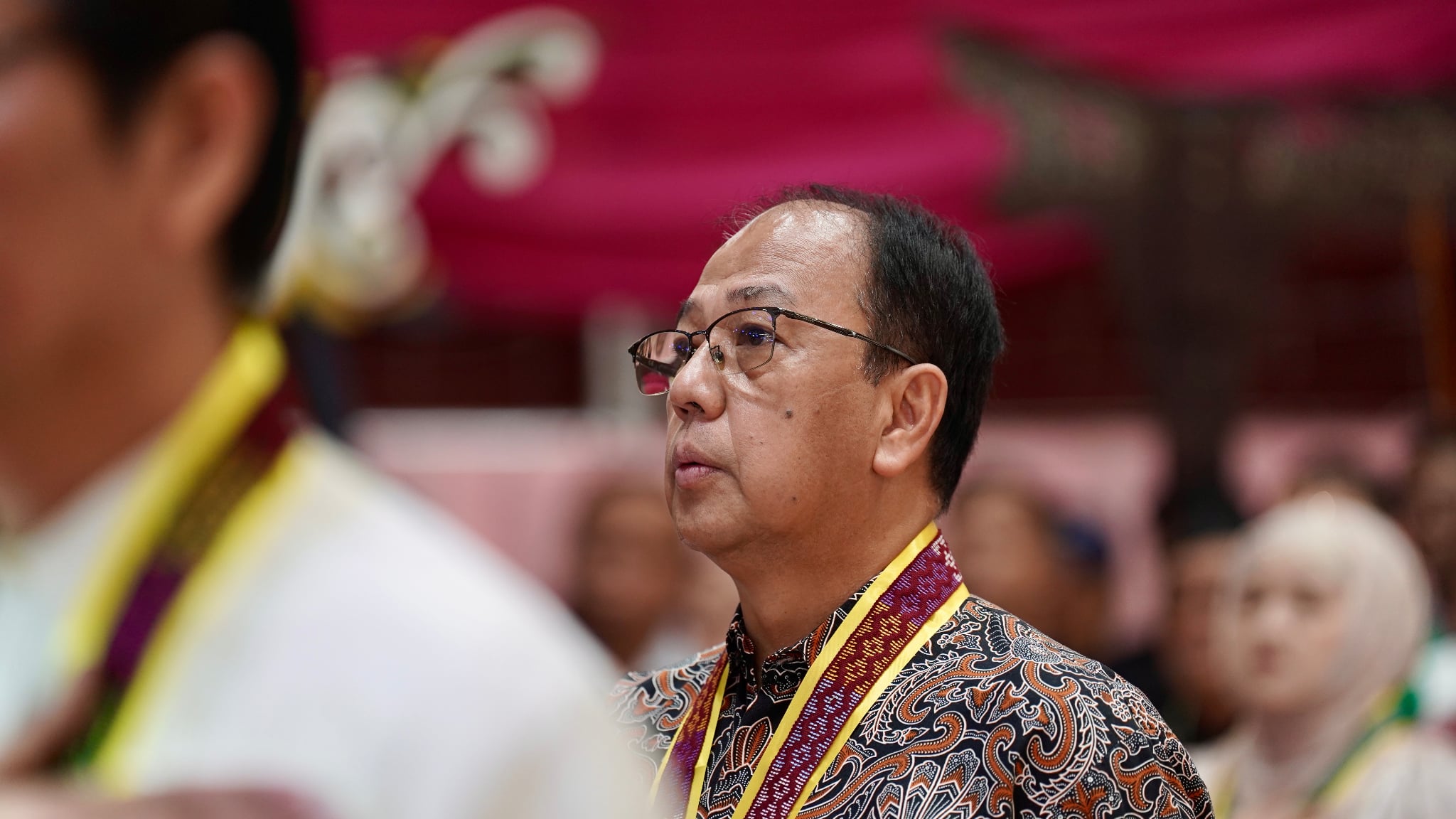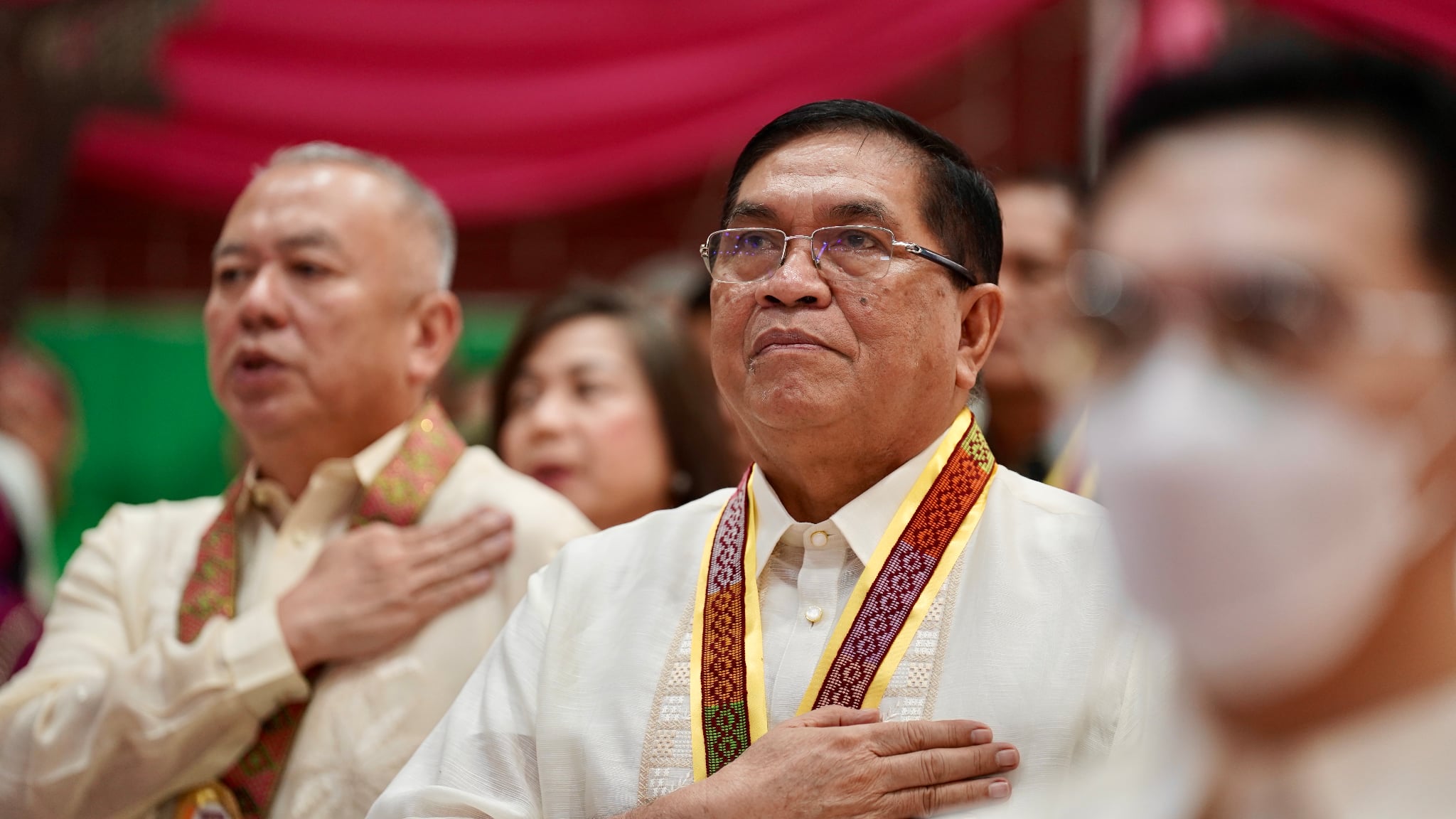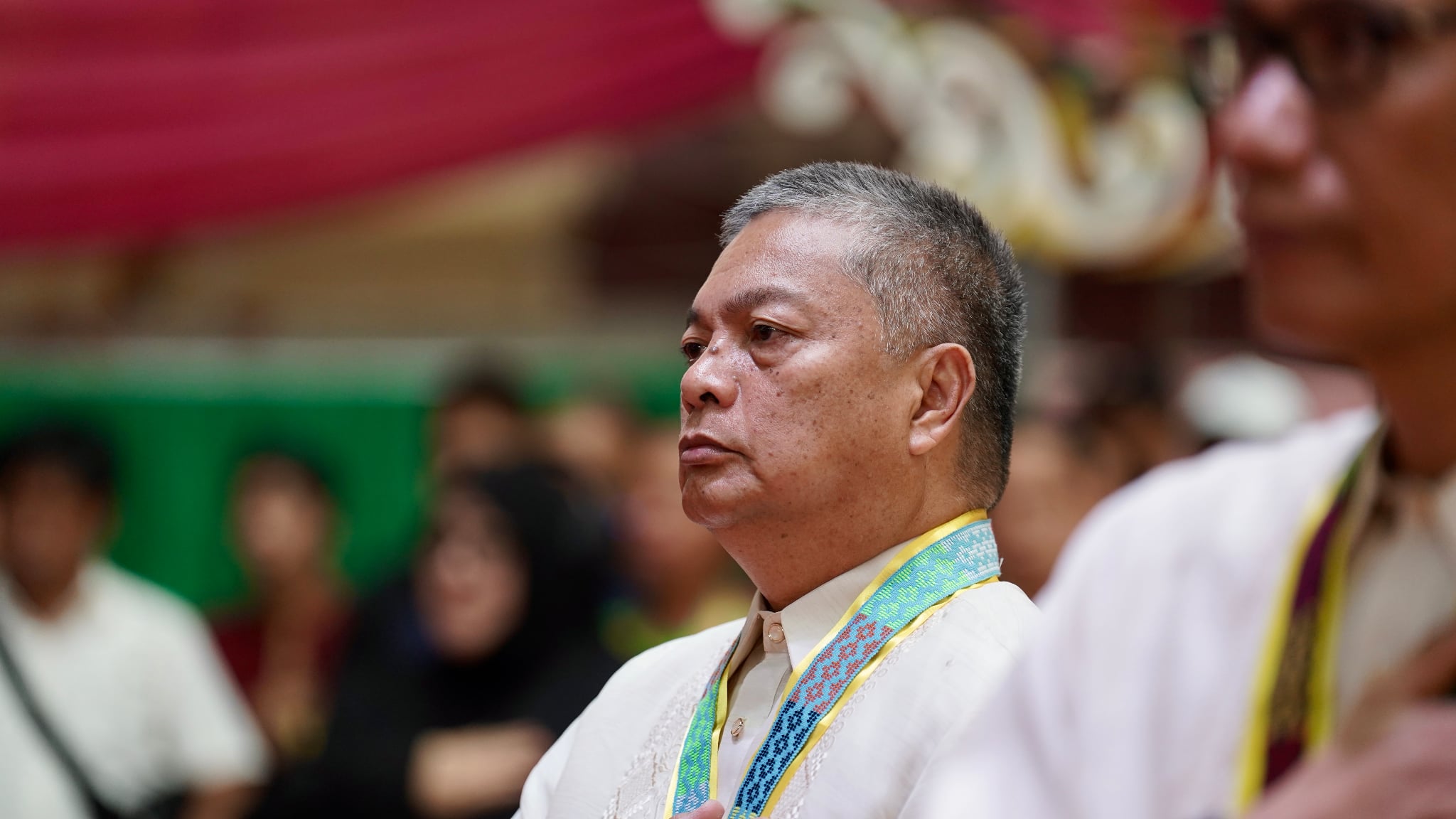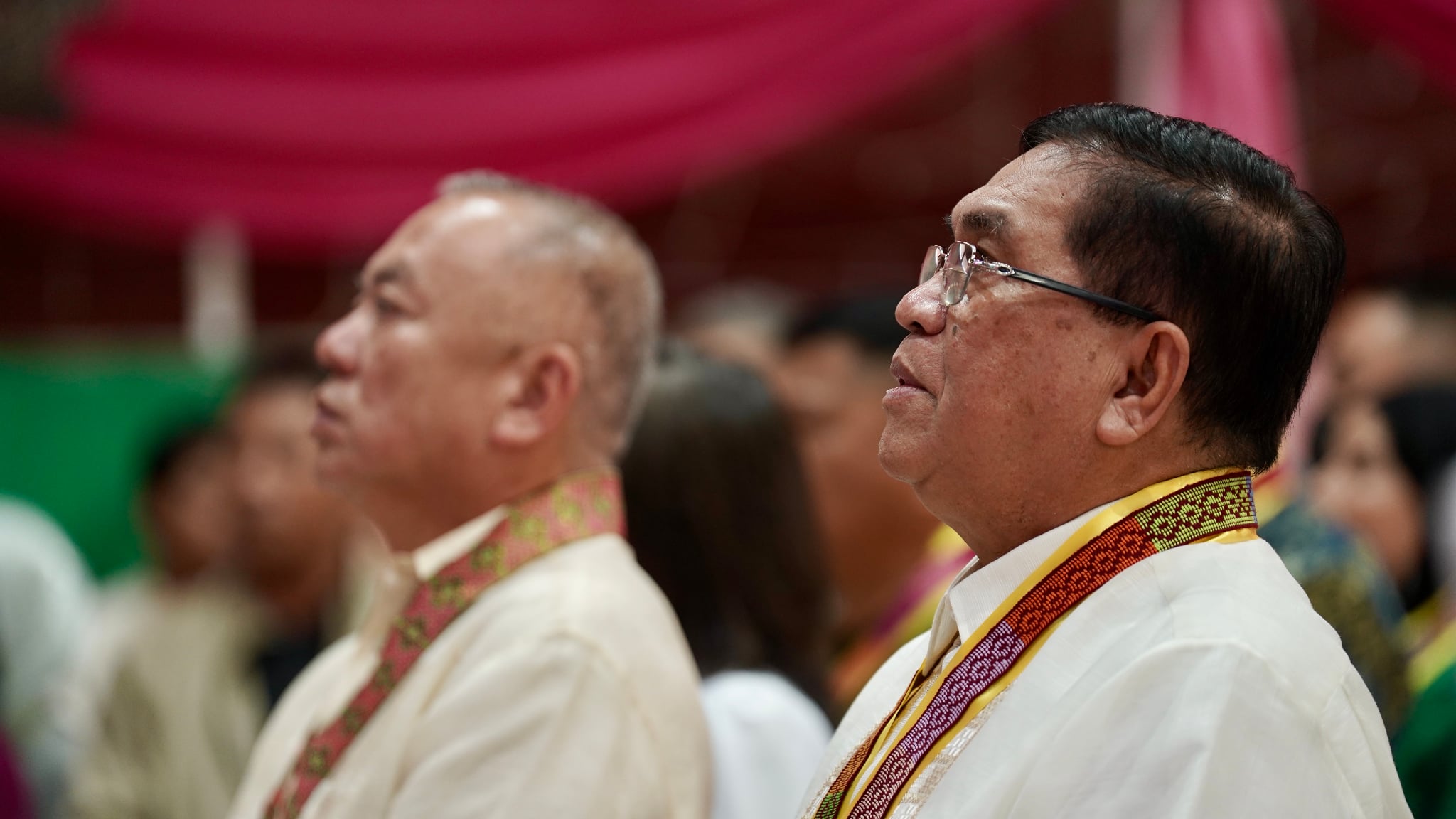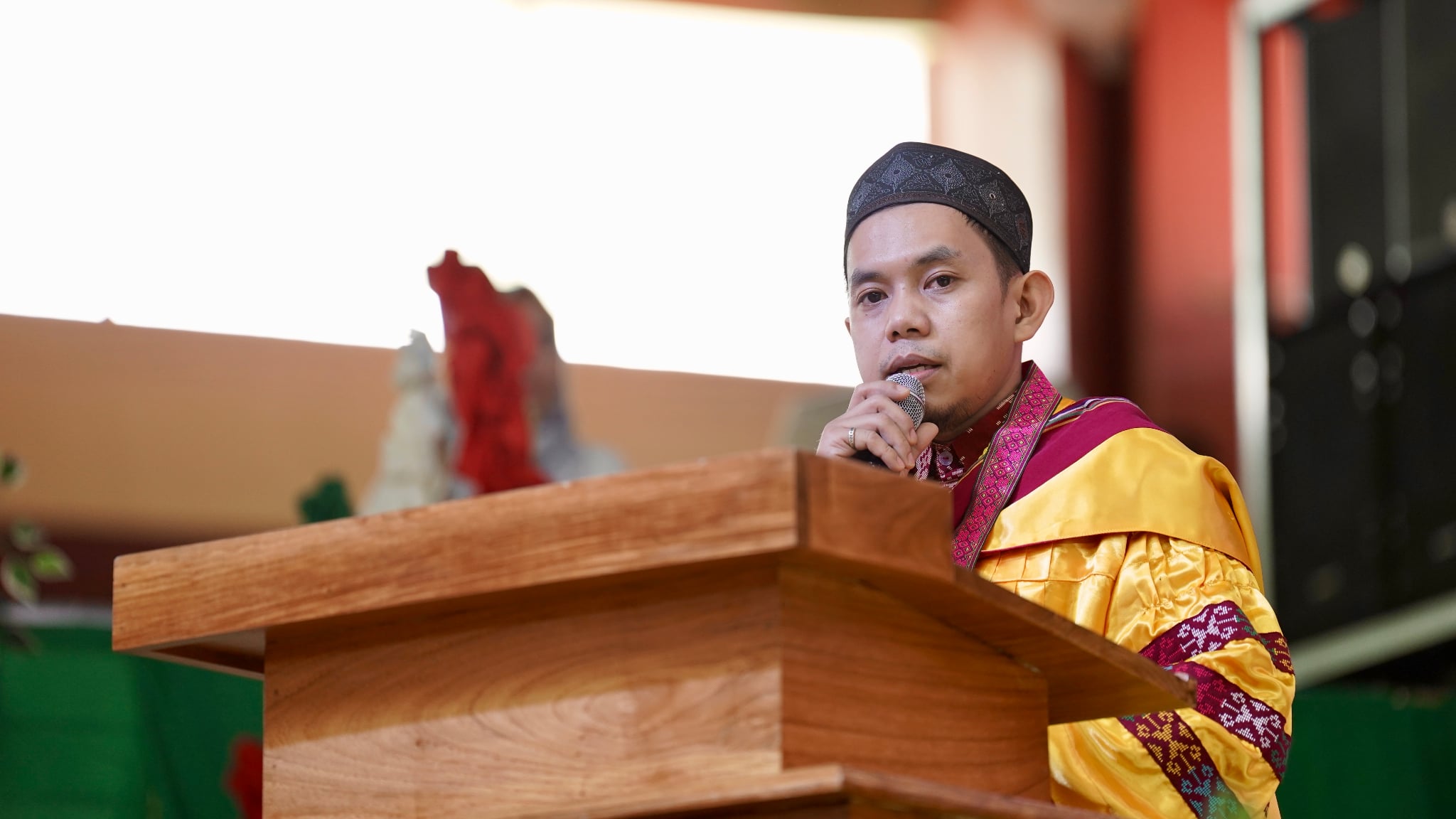By Nasrimah R. Sampaco-Fayez
The investiture of Atty. Paisalin P.D. Tago, CPA, as the 9th President of the Mindanao State University System, formally conducted on August 13, 2025, constituted a noteworthy event, subsequent to his appointment on June 27, 2025. The ceremony, convened at the Dimaporo Gymnasium, transcended a mere formality. The event marked the definitive inauguration of a new epoch for MSU, propelled by President Tago’s comprehensive Nine-Point Agenda. This strategic blueprint is meticulously designed to facilitate MSU’s designation as a National Peace University, fundamentally impacting the nation through education by fostering social and economic progress and integrating Muslim communities and indigenous peoples into the country’s political and economic landscape.
The event harmonized long-standing traditions with a forward-thinking vision. The program commenced with a formal Processional, followed by an invocation by Mohammad Jihan M. Macarambon, and renditions of the Philippine National Anthem and the Bangsamoro Hymn. Dr. Alma E. Berowa, Vice President for Academic Affairs and Overall Chairperson of the Investiture Committee, delivered the welcome address. Esteemed guests from national and regional government then offered their salutations, including OPAPRU Secretary Carlito G. Galvez Jr., BARMM Interim Chief Minister Abdulraof A. Macacua, Ozamis City Mayor Sam Norman G. Fuentes, BTA-Parliament Deputy Floor Leader Atty. Jose I. Lorena, Office of the Presidential Adviser for Marawi Rehabilitation Secretary Nasser C. Pangandaman, and Former Senator Aquilino Martin “Koko” Dela Llana Pimentel III, represented by CHR Commissioner Gwendolyn Pimentel-Gana, all of whom extended their congratulations.
The MSU Sining Pananadem provided a captivating performance for the audience. Dr. Shirley C. Agrupis, Chairperson of the Commission on Higher Education, was represented by CHED Region XII Director Dr. Rody Garcia, who delivered an inspirational message. Dr. Garcia conveyed the commission’s hope that all programs with certificates of program compliance would soon participate in global ratings. He expressed confidence that President Tago’s background in administration and public service leadership has equipped him to effectively lead the university, surmount challenges, and establish outstanding initiatives for sustainable development. Dr. Garcia encouraged everyone to celebrate the occasion and anticipate a promising future for MSU under President Tago’s guidance.
During his investiture address, Atty. Paisalin P.D. Tago, CPA, emphasized a profound commitment encapsulated in the legal maxim, “Acta non verba,” which translates to “Actions, not words.” As the 9th President of the MSU System, his Nine-Point Agenda represents an integrated strategy designed to establish MSU as a preeminent National Peace University. Each component is a critical element of the overarching goal, promising a comprehensive transformation across all facets of the university.
The first point, Institutional Alignment and Governance, focuses on unifying system-wide functions, policies, and structures under a coherent governance framework, while promoting inter-campus collaboration and transparent, stakeholder-involved decision-making. It also involves strengthening the leadership of the Board of Regents and the Office of the President to enforce ethical leadership and fiscal discipline, and to advance peace and development frameworks in all university operations. This also includes the creation of Technical Working Groups to study the MSU Charter for possible amendments and to revisit the MSU Code of Governance, which was created in 1977 and revised in 1988.
The second point, Strategic Planning and Validation of Institutional Developments, involves President Tago’s call for comprehensive reviews of campus strategic and operational plans to ensure they align with national, regional (BARMM), and global education goals. A core part of this is embedding peacebuilding, resilience, and sustainable development into MSU’s strategies and pushing for the enactment of a revised MSU System Charter to enhance institutional autonomy and responsiveness.
The third, Quality Assurance and Global Competitiveness, commits to enhancing global visibility and competitiveness, where MSU will continue to soar towards its aspiration for a world-class university. The agenda commits to strengthening compliance with quality assurance frameworks from organizations like AUN-QA, ISO, AACCUP, and CHED COPC, among others. It also aims to expand partnerships with international institutions, promote student and faculty mobility, and pursue international rankings by benchmarking with ASEAN universities.
The fourth point, Curriculum Enhancements, Research, Extension Services, and Production, emphasizes strengthening Peace Education as a core curriculum and institutional advocacy and institutionalizing relevant courses such as Halal 101, Education in Emergencies, and Sustainable Development Goals (SDGs). The agenda also includes embedding digital pedagogy and community-based learning in curricula, promoting research on peace and socio-economic development, and strengthening MSU’s production enterprises. Additionally, it prioritizes strengthening programs in agriculture, fisheries, and forestry to develop and enhance the potential of Lake Lanao as a boundless resource for Lanao Province and the Bangsamoro Region as a whole.
The fifth point, Rehabilitation and Preservation of Cultural and Religious Heritage, focuses on cultural preservation and diplomacy through the rehabilitation of key heritage sites. The plan specifically calls for the rehabilitation of the King Faisal Mosque and the revitalization of the Aga Khan Museum to serve as a hub for cultural preservation and interfaith understanding, considering these two are among what MSU is known for. It also seeks to promote cultural diplomacy and peace through heritage conservation and to engage local artisans and historians in these efforts.
The sixth, Human Resource Development and Culture Building, aims to enhance faculty and staff through development programs and strengthen performance-based evaluation and merit systems. It seeks to cultivate a culture of organizational efficiency and effectiveness rooted in integrity, service, and innovation, while also promoting wellness and inclusivity in the workplace. A key goal is to encourage alumni and scholars to use their skills and knowledge to benefit communities, especially in the Islands of MINSUPALA.
The seventh point, Student Welfare and Peacebuilding Initiatives, is dedicated to institutionalizing programs that support student mental health, well-being, and safety. It also seeks to strengthen student participation in governance and peace education, while providing inclusive support systems for vulnerable learners. Improving student facilities and fostering a good learning environment are also key objectives.
The eighth point, Infrastructure Improvement, Development, and Digital Transformation, commits to providing state-of-the-art facilities. This includes upgrading learning spaces like classrooms, laboratories, dormitories, libraries, and other facilities, and integrating green and sustainable designs. It also emphasizes ensuring accessibility for people with disabilities, modernizing student dormitories and other facilities, and implementing a “smart campus” system with unified digital platforms for academic and administrative functions. This point also includes using data analytics for evidence-based planning and establishing strong cybersecurity protocols.
Finally, the ninth point, Communications, Public Engagement, Security, and Order, seeks to enhance MSU’s visibility and reputation through strategic communication and public engagement. It seeks to institutionalize transparency through open data, forge partnerships with various stakeholders, and improve campus security in coordination with local authorities. The agenda also promotes an environment-friendly campus and regular public consultations to foster community partnerships.
In his concluding remarks, President Tago issued a powerful call to action, urging the entire MSU community to embrace the Nine-Point Agenda, the comprehensive roadmap toward the transformation of MSU, which is also anchored in the university’s mandate of social transformation through peace education and cultural integration. “The task before us is not merely to administer and manage a university, but to safeguard the dream of a Mindanao State University that stands as a fortress of learning, a cradle of peace, a bastion of the unceasing or eternal chase for truth and justice, and a beacon of hope for Mindanao, the Bangsamoro, and the nation,” President Tago said.
As the investiture concluded, a new chapter opened for the MSU System, under the resolute leadership of Atty. Paisalin P.D. Tago. With a palpable sense of unity and purpose, the MSU System is now poised to embark on a transformative journey, community is ready to translate ambitious goals into measurable outcomes, solidifying MSU’s legacy as a center for peace, justice, and progress in Mindanao and beyond.

